Editor’s note: Some scenes in the video below contain offensive language.
D.C. on Monday saw its fourth day of protests over the death of George Floyd, who pleaded for air as a Minneapolis officer pressed a knee into his neck last week.
Police used tear gas, rubber bullets and low-flying helicopters to break up the marchers as the city imposed a curfew to tamp down any potential violence and vandalism. Minutes before D.C.’s Monday night curfew started, President Donald Trump threatened the use of the U.S. military if states did not have more control over the widespread protests.
Here’s the latest from the fourth consecutive night of protests.
The latest
- D.C. will be under a curfew at 7 p.m. Tuesday until 6 a.m. Wednesday.
- Trump threatened to use military force against protesters nationwide.
- Arlington County pulls officers out of D.C., as the county board issues a statement condemning the killing of George Floyd.
DC gathers up protesters
D.C. police loaded up vans of protesters near 16th and I streets after the 7 p.m. curfew Monday. In Lafayette Square near the White House, there was heavy police presence in the area and protesters had largely left the scene.
Several people then gathered in other parts of the city. Hundreds of marchers on Florida Avenue NW headed toward Adams Morgan before being cornered at 15th and Swann streets, where police used flash bangs to disperse marchers.
We are trapped between 14th & 15th Streets on Swann St NW. Cops at both ends of the street even in the alleys. #dcprotest pic.twitter.com/xFHfaK3Rb4
— Ken Duffy (@KenDuffyNews) June 2, 2020
Within sight of the Capitol building, marchers were turned back by law enforcement officers using tear gas, pellets and low-flying helicopters kicking up debris, The Associated Press reported. As they dispersed, some protesters smashed windows at a nearby office building.
Right now: near DC convention center. Military helicopters very low overhead @nbcwashington pic.twitter.com/CwXE6bCv8U
— Jackie Bensen (@jackiebensen) June 2, 2020
About 10 minutes later, here it goes again. pic.twitter.com/3yoxOAu0uw
— Zolan Kanno-Youngs (@KannoYoungs) June 2, 2020
In Georgetown, several shops were boarded up in advance of Mondays protests.
Most store fronts on M Street in Georgetown tonight are boarded up as dusk falls pic.twitter.com/U0dXb3TXya
— Dave Dildine (@DildineWTOP) June 2, 2020
With the city under a curfew,. Metro also ended its rail and bus services earlier, at 8 p.m. and 9 p.m., respectively. It will do the same Tuesday night.
Also after 7 p.m., a few protesters walked up to the police and managed to negotiate a peaceful resolution with the commander, with the protesters agreeing to march away from the White House, WTOP’s Alejandro Alvarez reported.
A few protesters walked up to the police and managed to negotiate a peaceful resolution with their commander. They’ve agreed to march away from the White House.
What happened at Lafayette was so intense and sudden that the hundreds at H and 16th scattered into the city. pic.twitter.com/z1K0hhTodc
— Alejandro Alvarez (@aletweetsnews) June 1, 2020
Protesters had been congregating at Lafayette Square and on the grounds of the U.S. Capitol, D.C. Police Chief Peter Newsham said during a Monday afternoon news conference.
Just before 6 p.m., pepper spray was used at the barricade in Lafayette Square while protesters were kneeling, causing them to scatter and clear the area.
Tear gas just deployed at 16th & H Streets, police in riot gear & on horseback pushed the crowd back to Connecticut Av #dcprotest pic.twitter.com/LOd2UC5nmH
— Ken Duffy (@KenDuffyNews) June 1, 2020
A short while later, Trump gave a brief address at the White House Rose Garden and walked across Lafayette Square to be photographed in front of a church that had been burned during Sunday night’s protest.
Arlington County withdraws police, as DC mayor decries federal police’s use of munitions on protesters
D.C. Mayor Muriel Bowser called federal police’s use of munitions on protesters in front of the White House “shameful.” She said that the methods used by law enforcement 25 minutes before the 7 p.m. curfew and without provocation by “peaceful protesters” will make the job of D.C. police more difficult.
Also Monday night, the Arlington County Board in Virginia, as well as the County Manager and police chief, directed the county’s police to leave D.C.
“The County is re-evaluating the agreements that allowed our officers to be put in a compromising position that endangered their health and safety, and that of the people around them, for a purpose not worthy of our mutual aid obligations,” a county news release said.
Arlington County Board Chair Libby Garvey said she was “appalled” that mutual aid agreements were abused to endanger “their and others safety for a photo op.”
Furthermore, the board released a statement condemning the killing of George Floyd.
Trump threatens military force against protesters; episcopal bishop condemns Trump’s response to protests, Floyd’s killing
Trump spoke from the Rose Garden ahead of the D.C. curfew, saying he was taking “swift and decisive action to protect our great capital.”
“What happened in this city last night was a total disgrace,” Trump said. “We are putting everybody on warning. Our 7 o’clock curfew will be strictly enforced.”
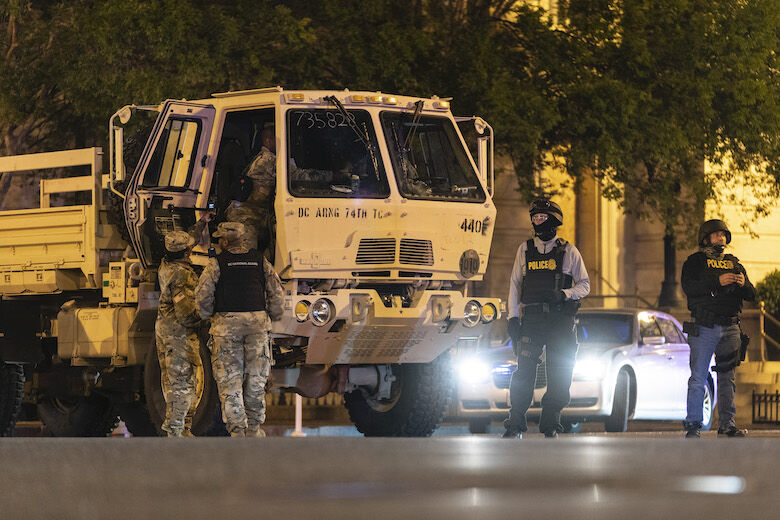
Getty Images/Joshua Roberts
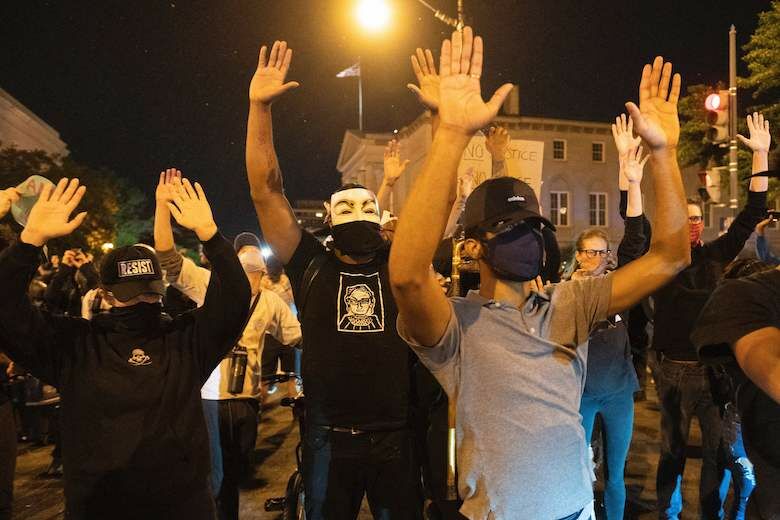
AFP via Getty Images/ROBERTO SCHMIDT
Right now: near DC convention center. Military helicopters very low overhead @nbcwashington pic.twitter.com/CwXE6bCv8U
— Jackie Bensen (@jackiebensen) June 2, 2020
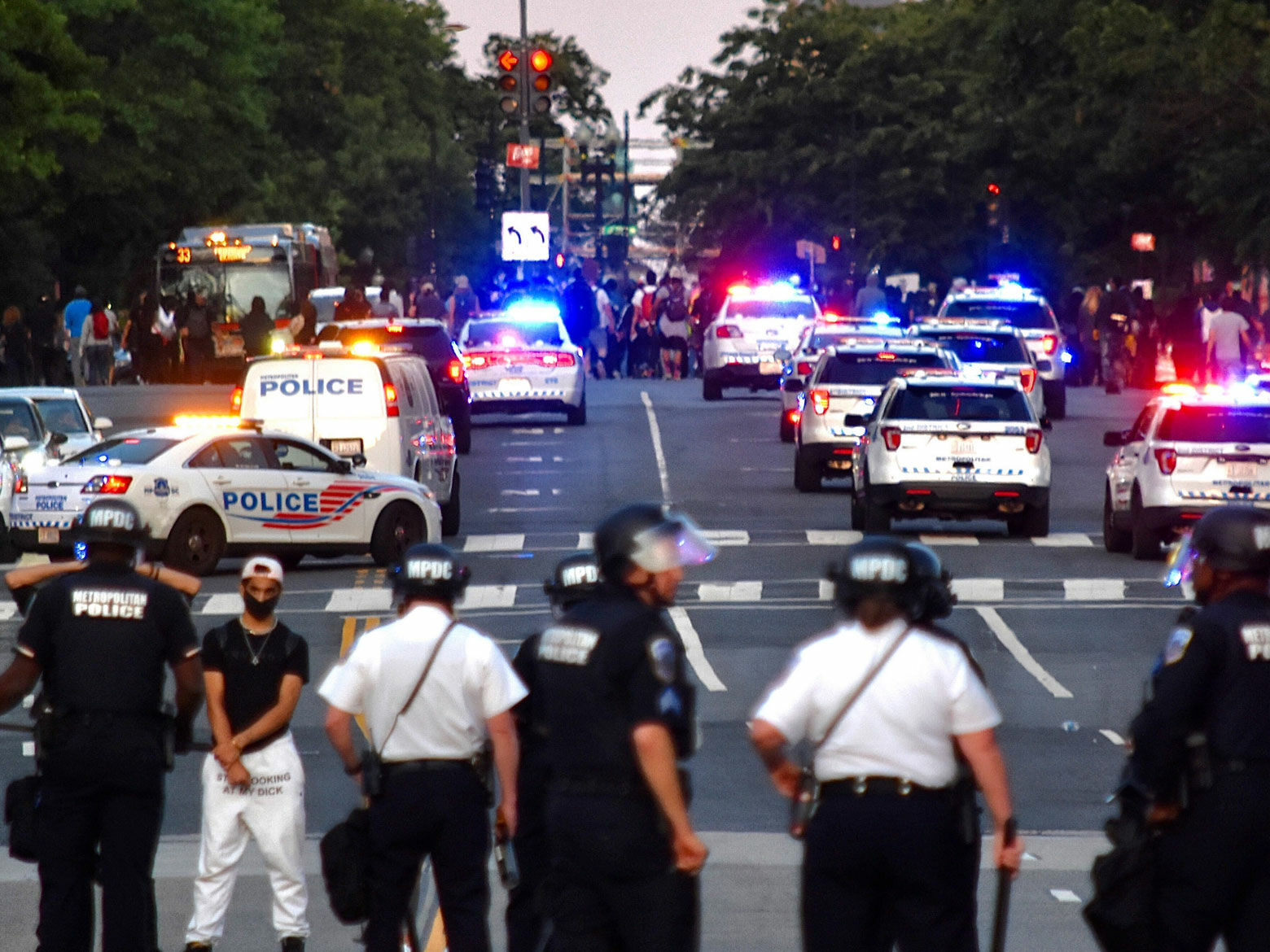
WTOP/Dave Dildine
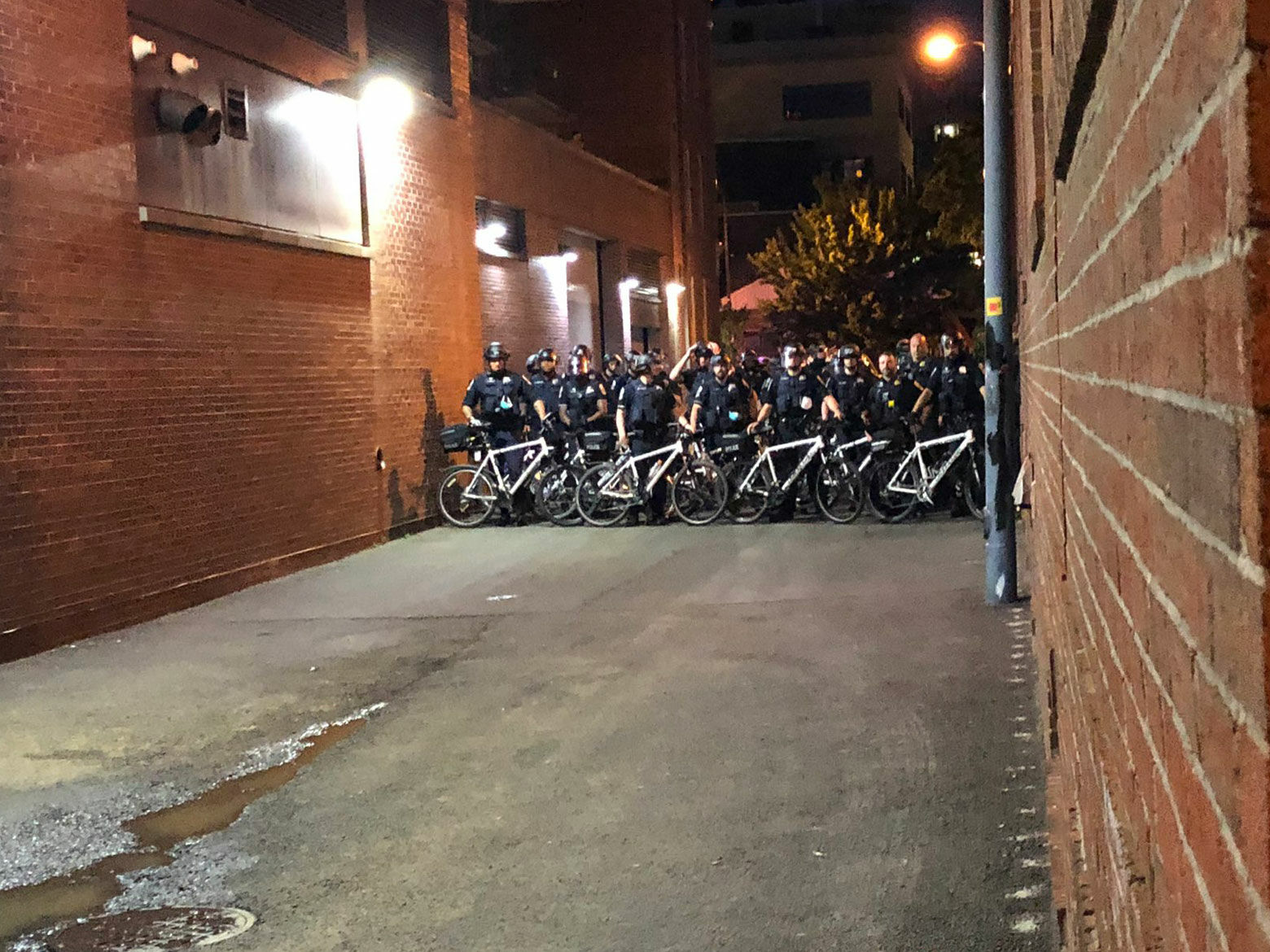
WTOP/Ken Duffy
Police have pinned us down at 15th St & Swann St NW. Several flash bangs used earlier to disperse the crowd. Very tense. #dcprotest pic.twitter.com/mZvWKJpFXX
— Ken Duffy (@KenDuffyNews) June 2, 2020
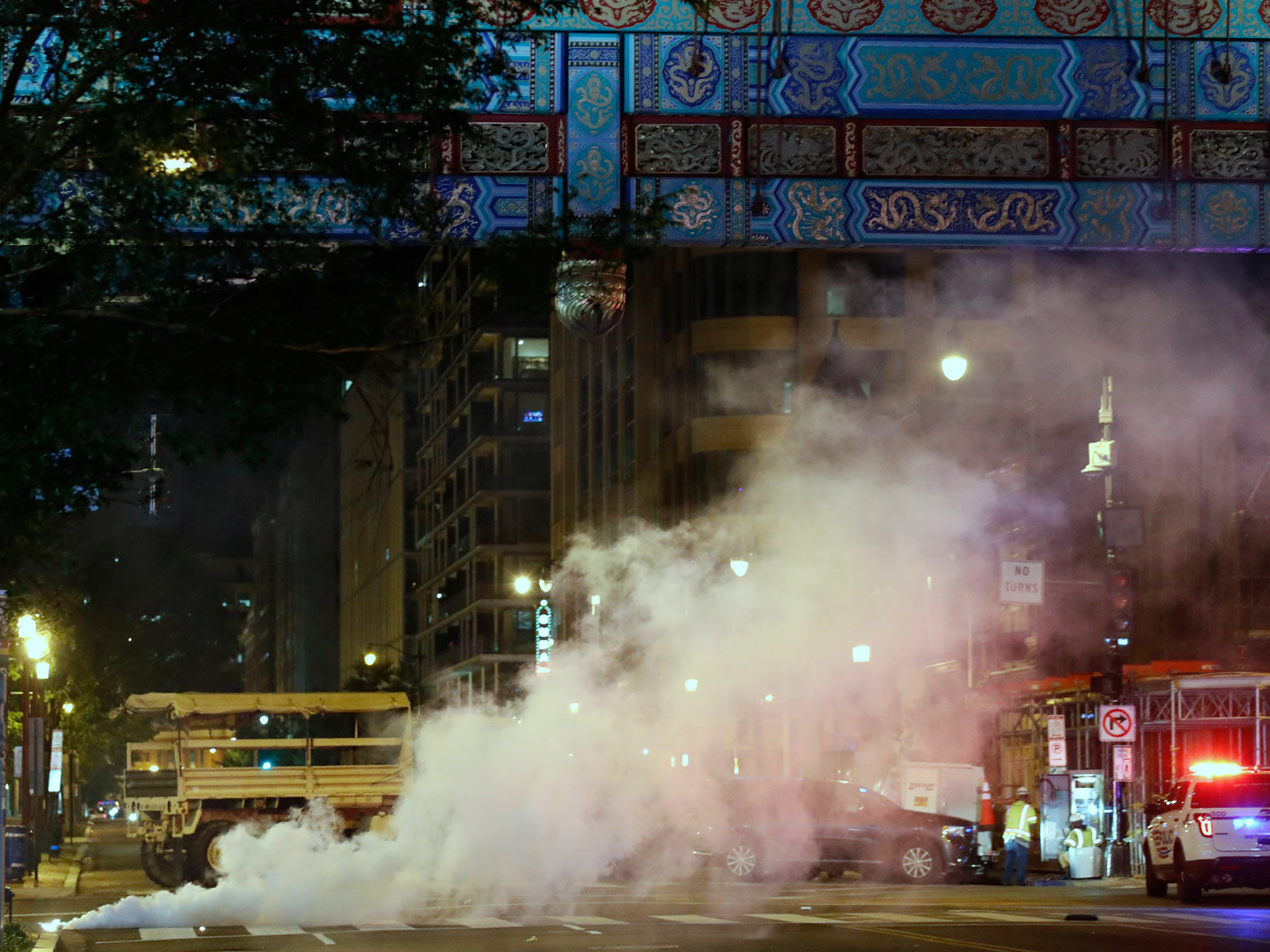
AP Photo/Alex Brandon
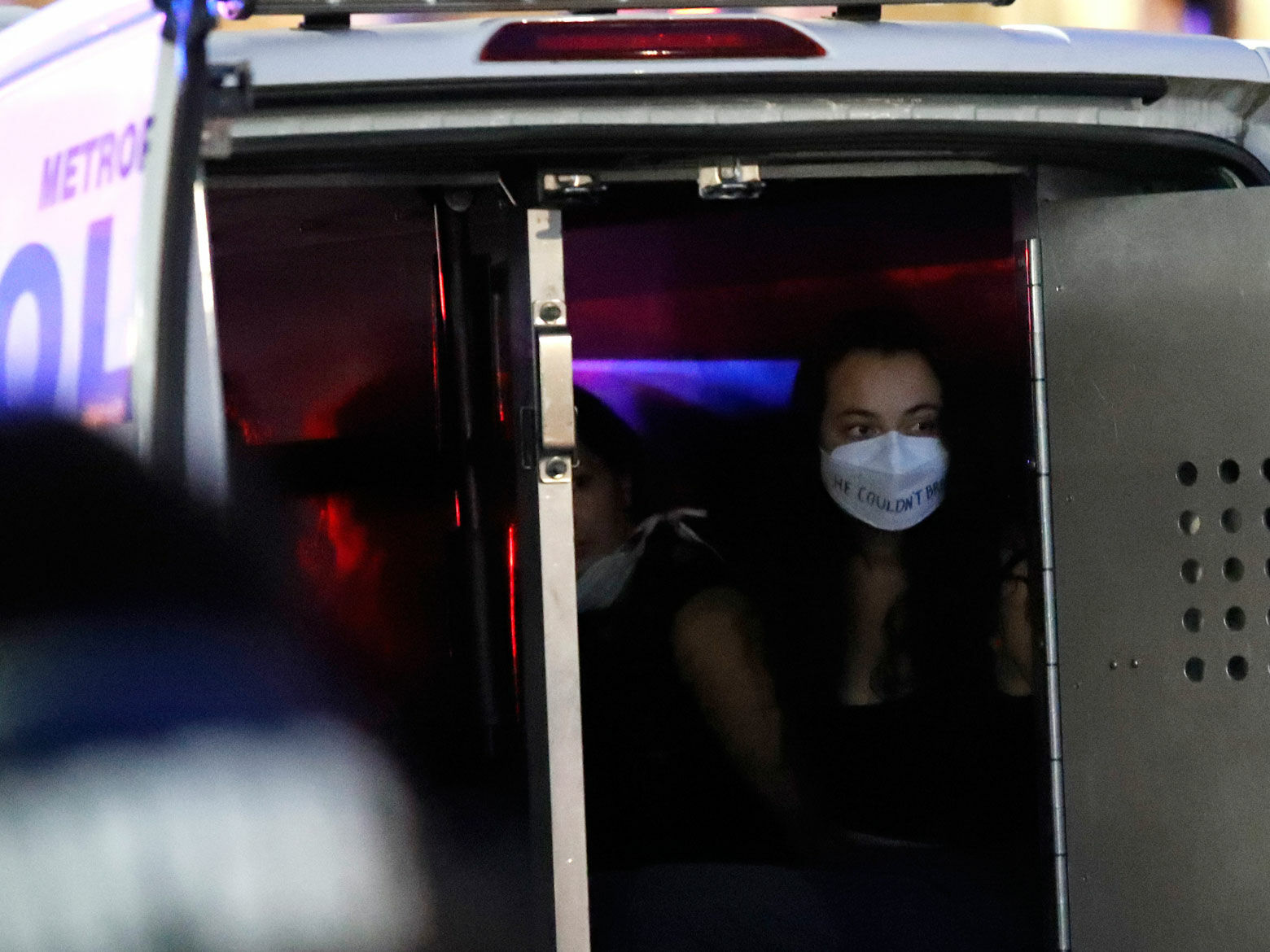
AP Photo/Alex Brandon
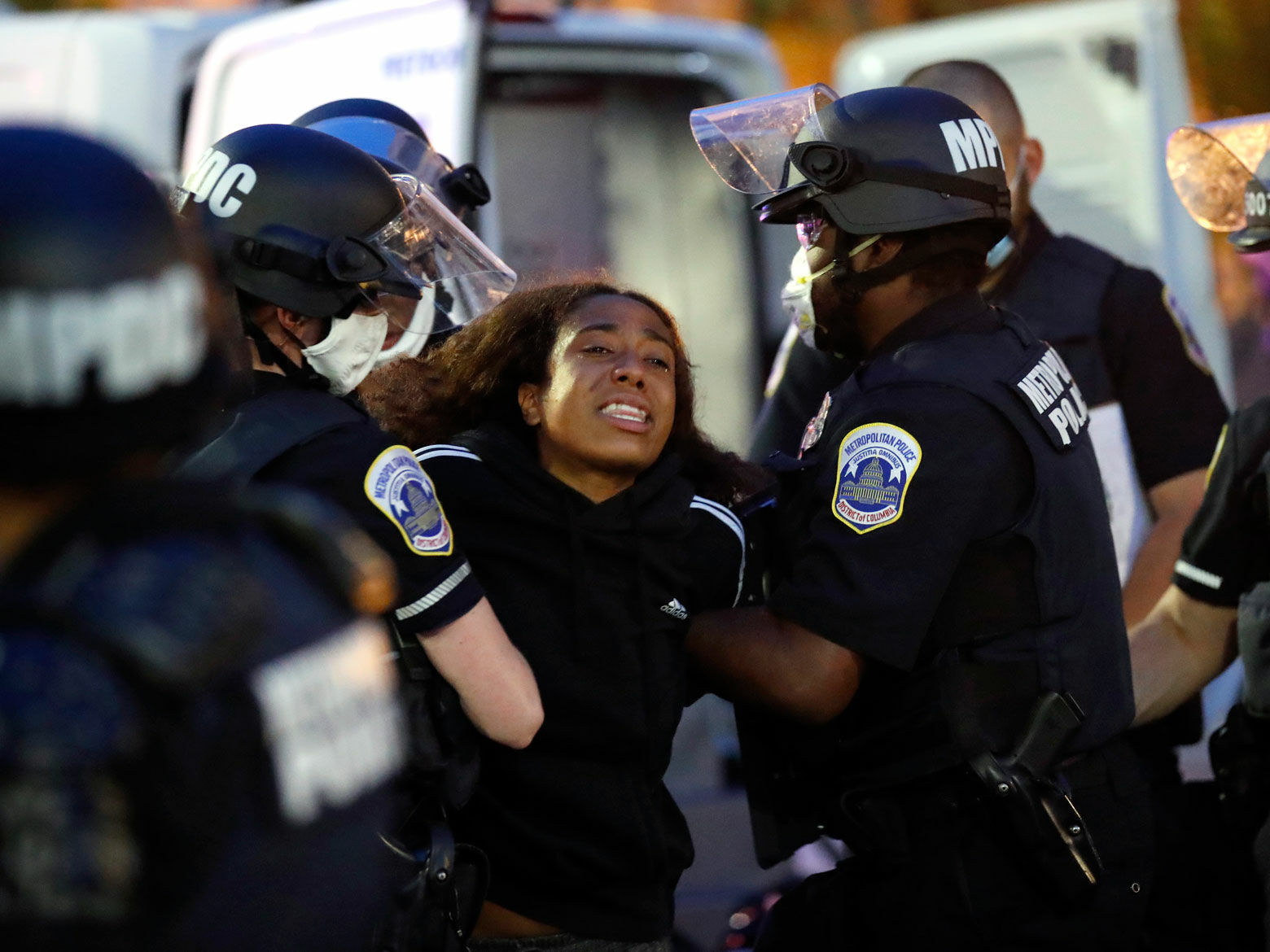
AP Photo/Alex Brandon
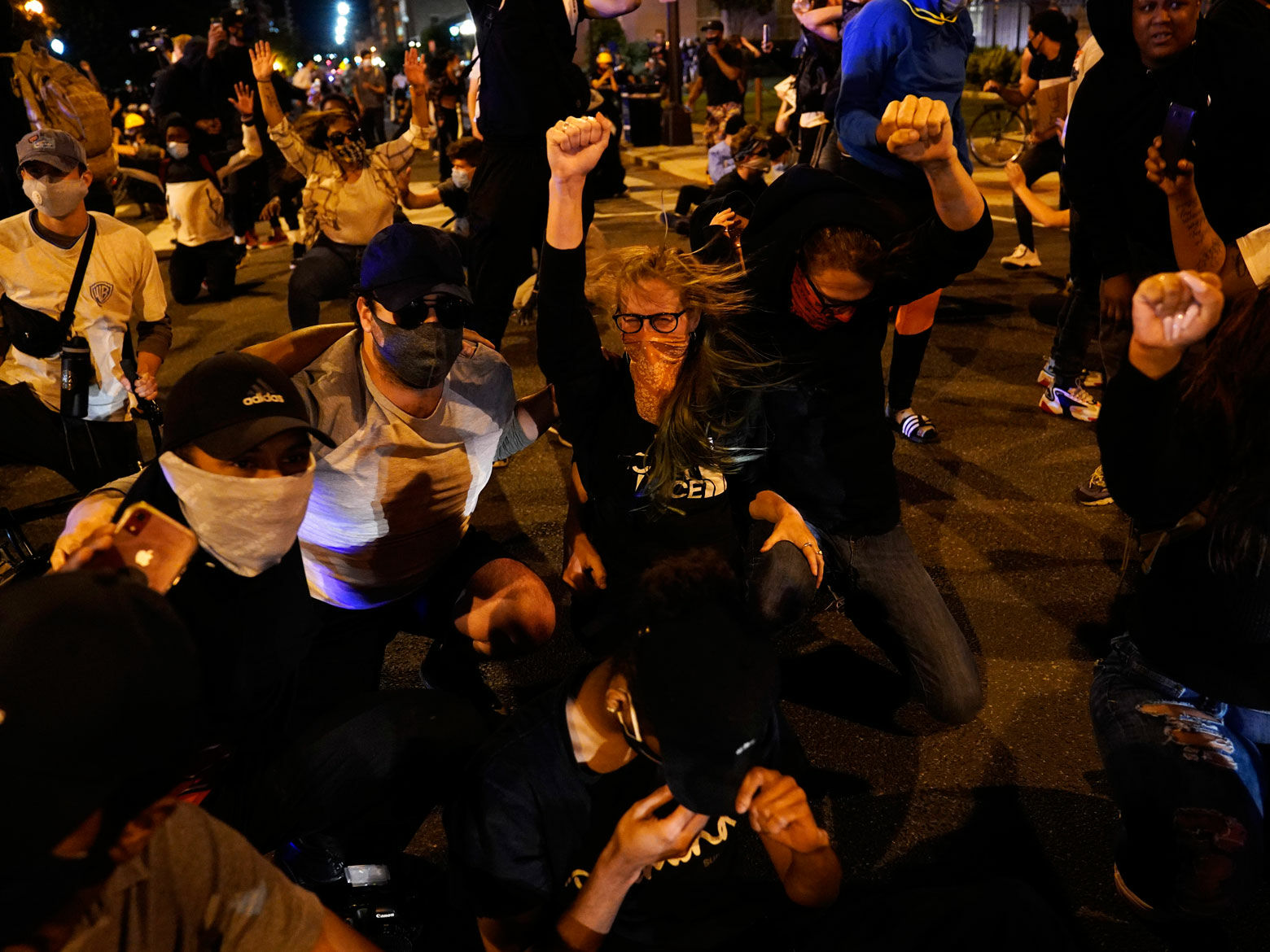
AP Photo/Evan Vucci
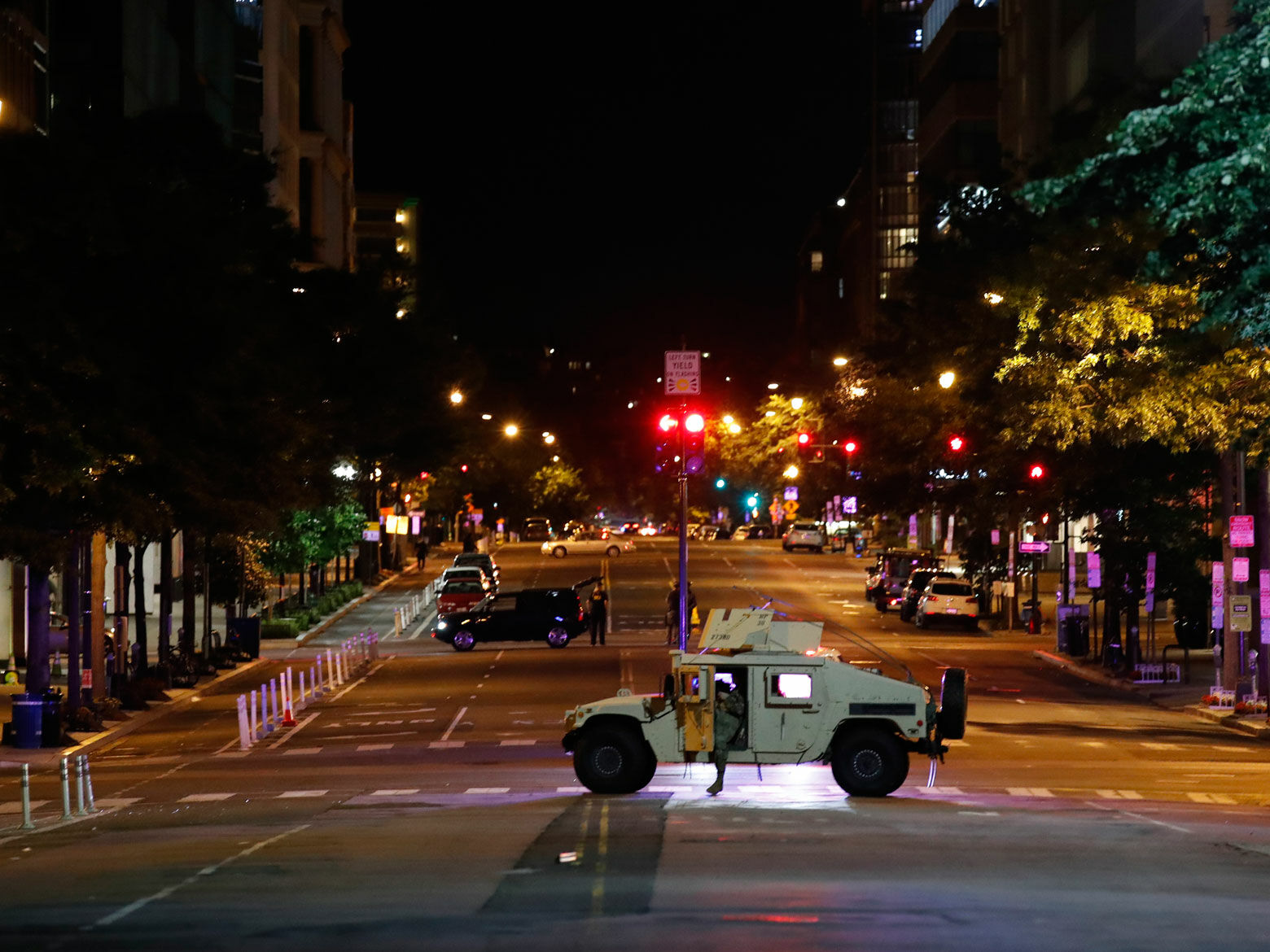
AP Photo/Alex Brandon

AP/Patrick Semansky

AP/Patrick Semansky
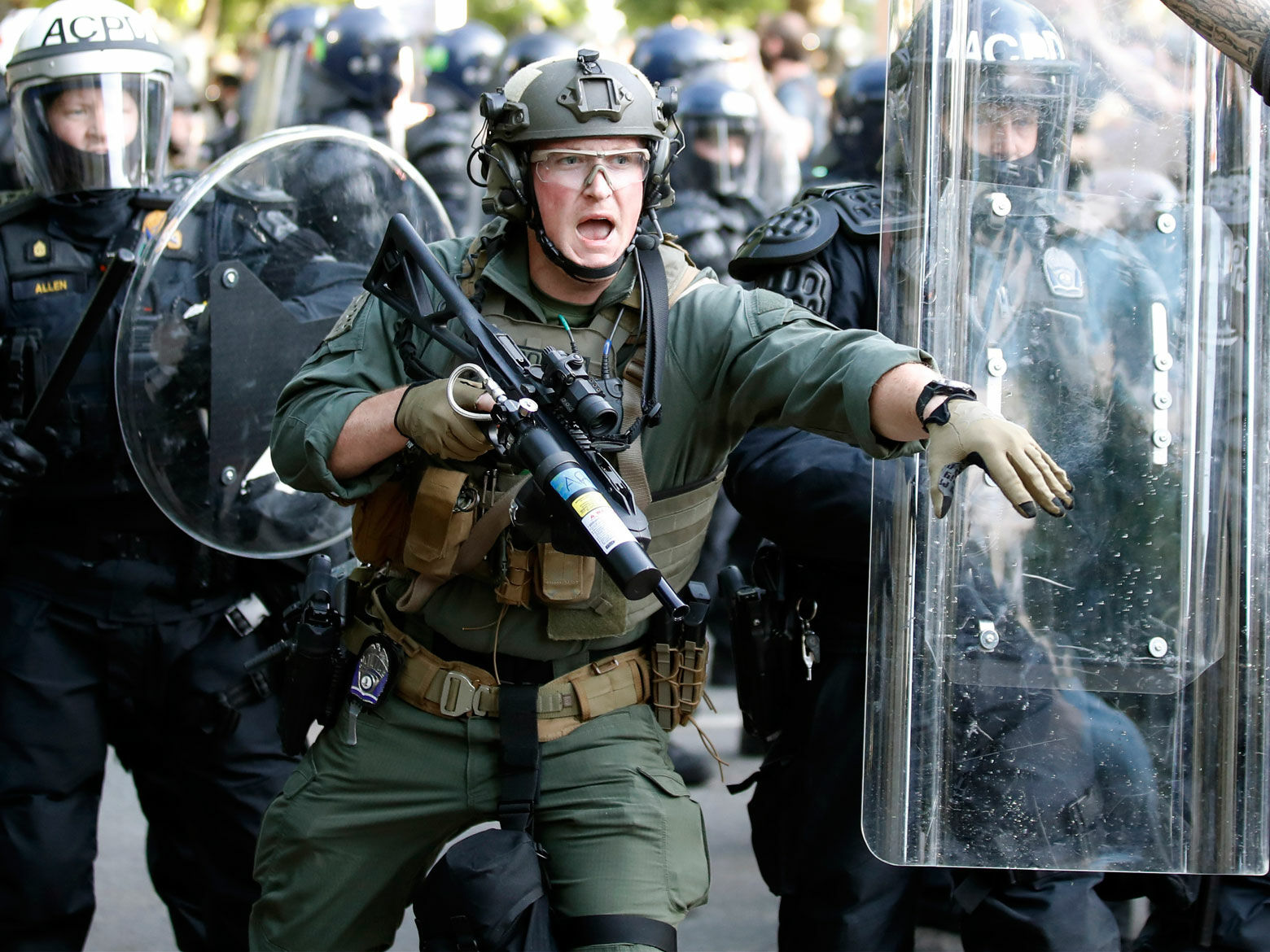
AP Photo/Alex Brandon
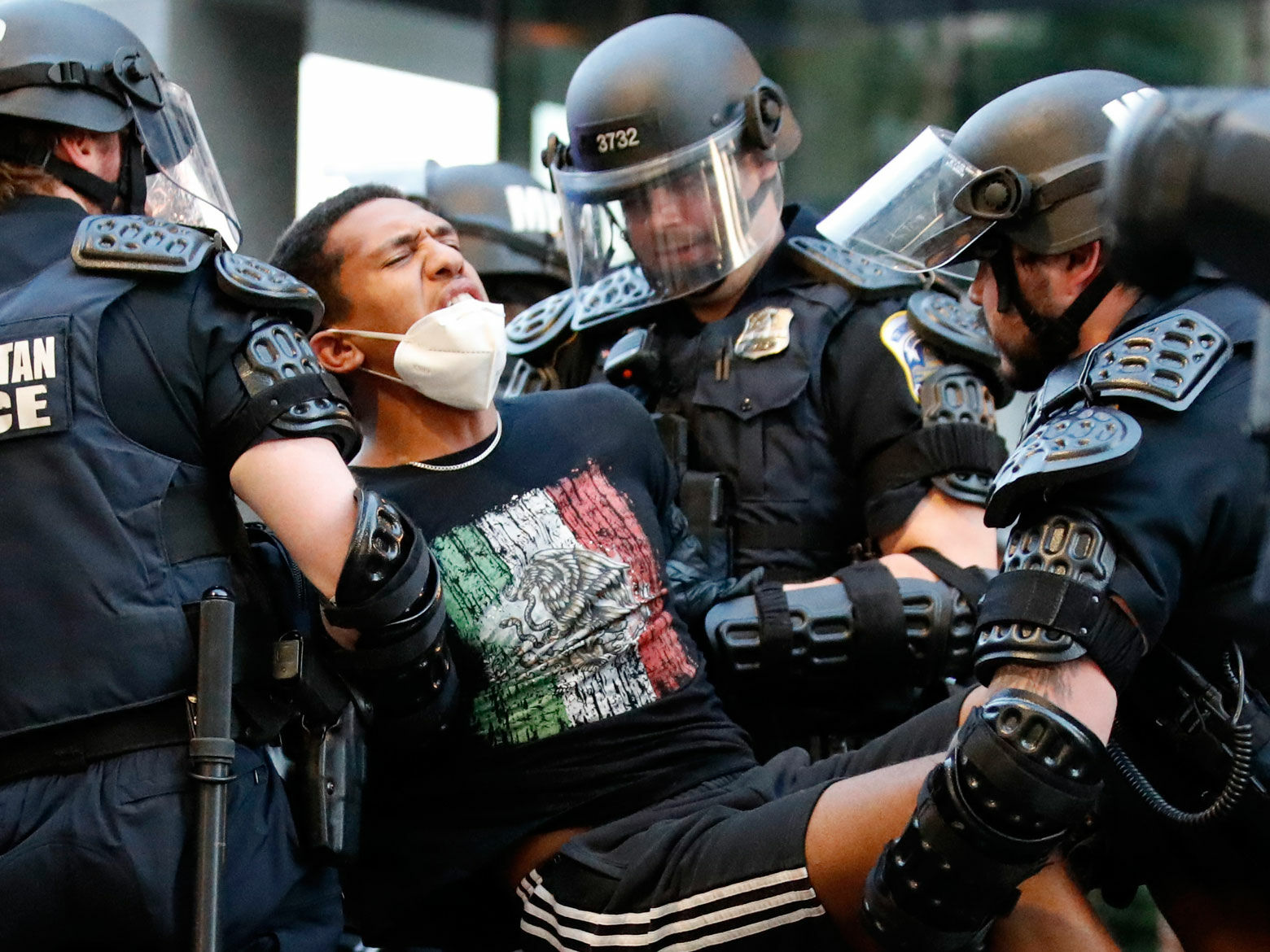
AP Photo/Alex Brandon
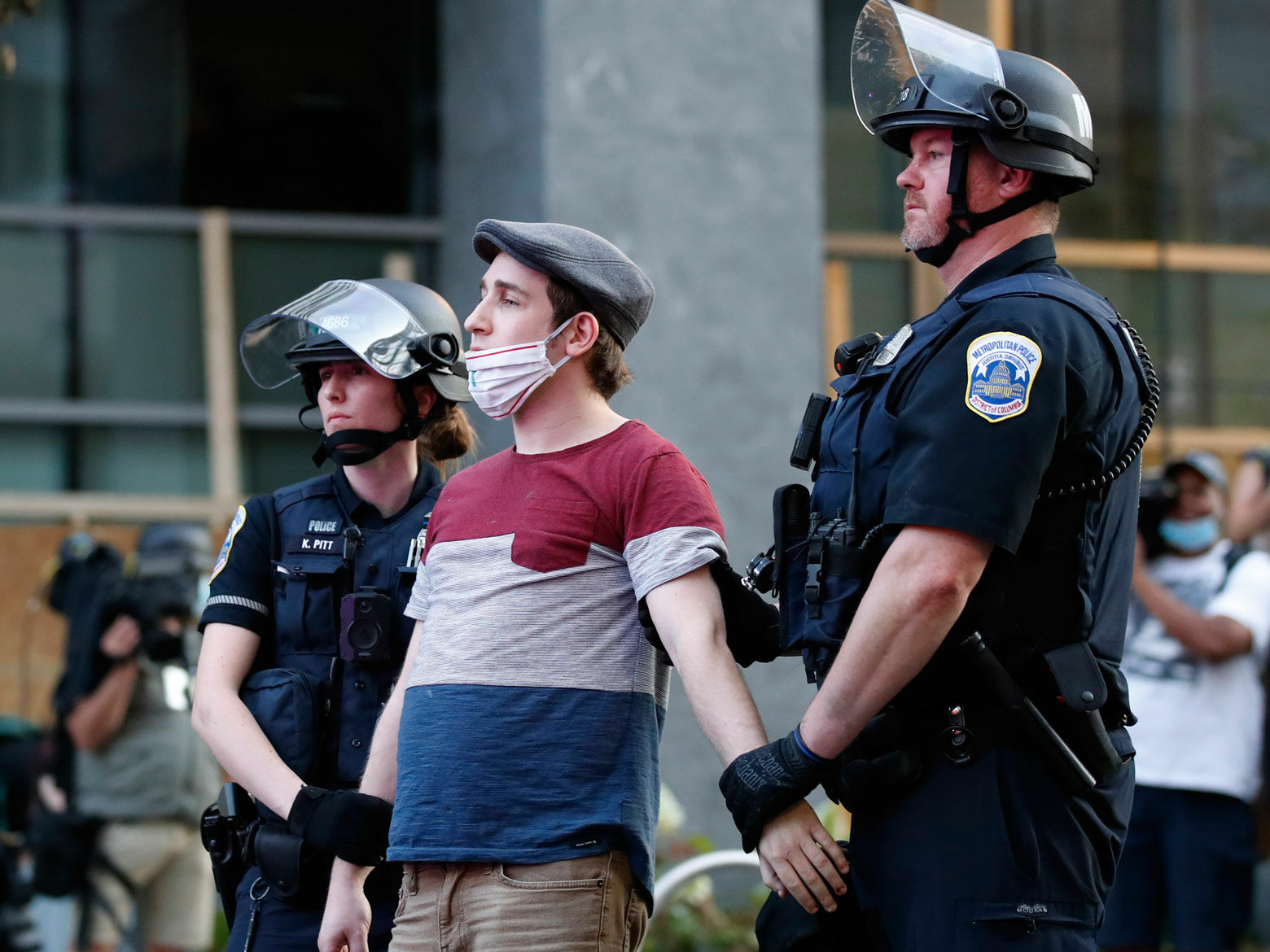
AP Photo/Alex Brandon
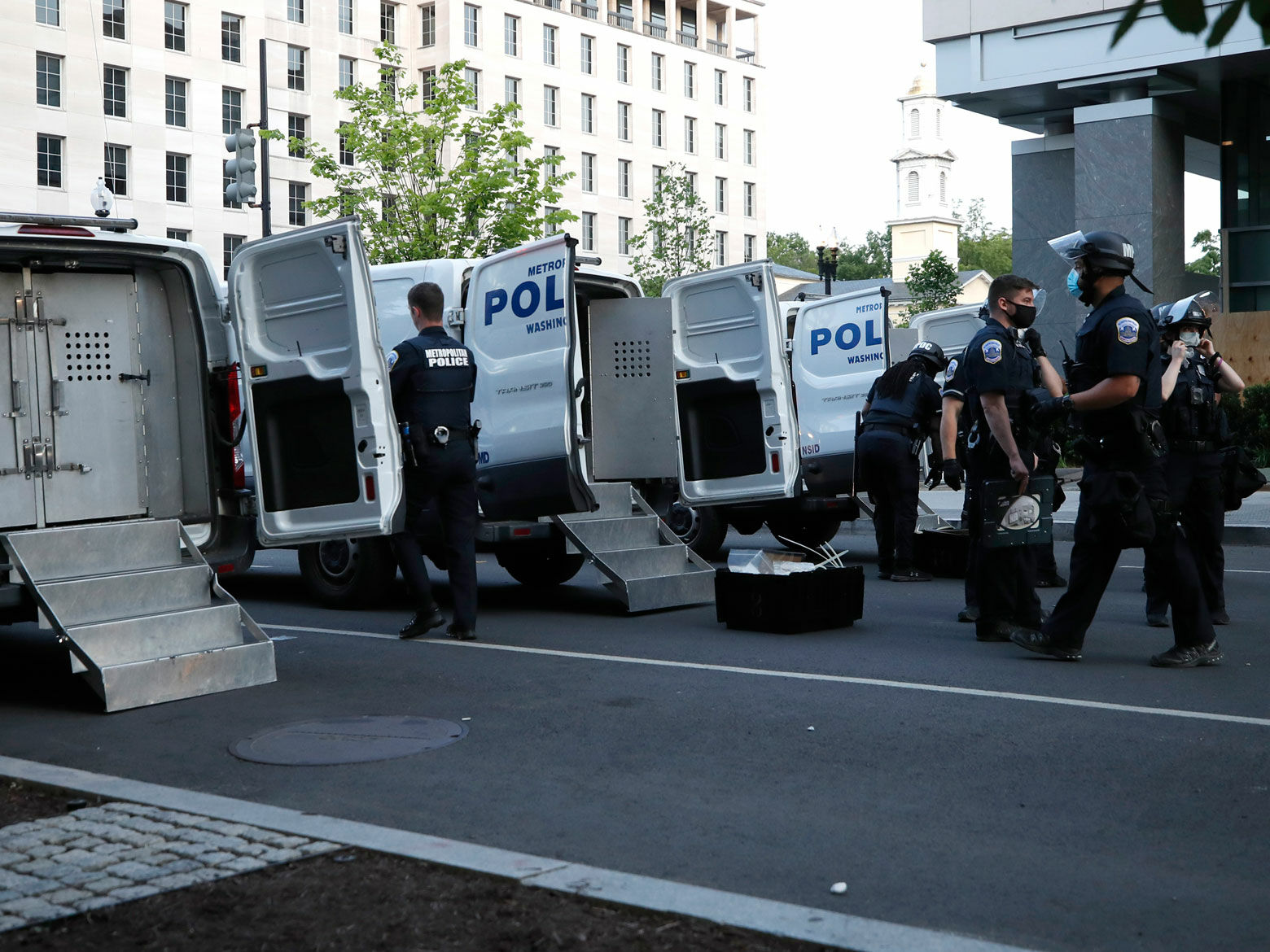
AP Photo/Alex Brandon
Most store fronts on M Street in Georgetown tonight are boarded up as dusk falls pic.twitter.com/U0dXb3TXya
— Dave Dildine (@DildineWTOP) June 2, 2020
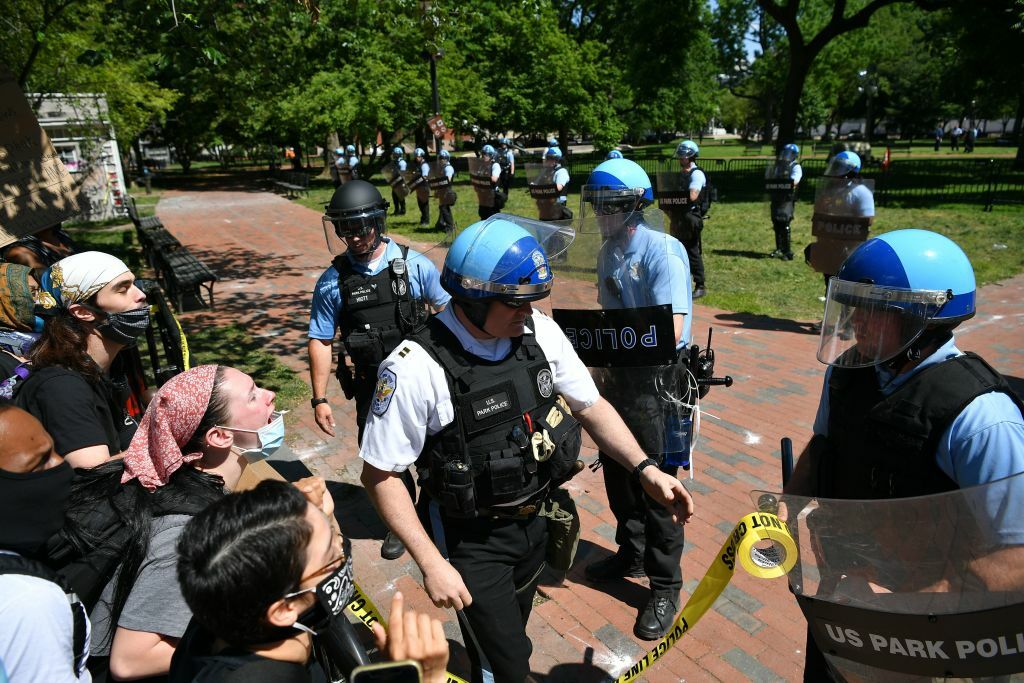
AFP via Getty Images/MANDEL NGAN
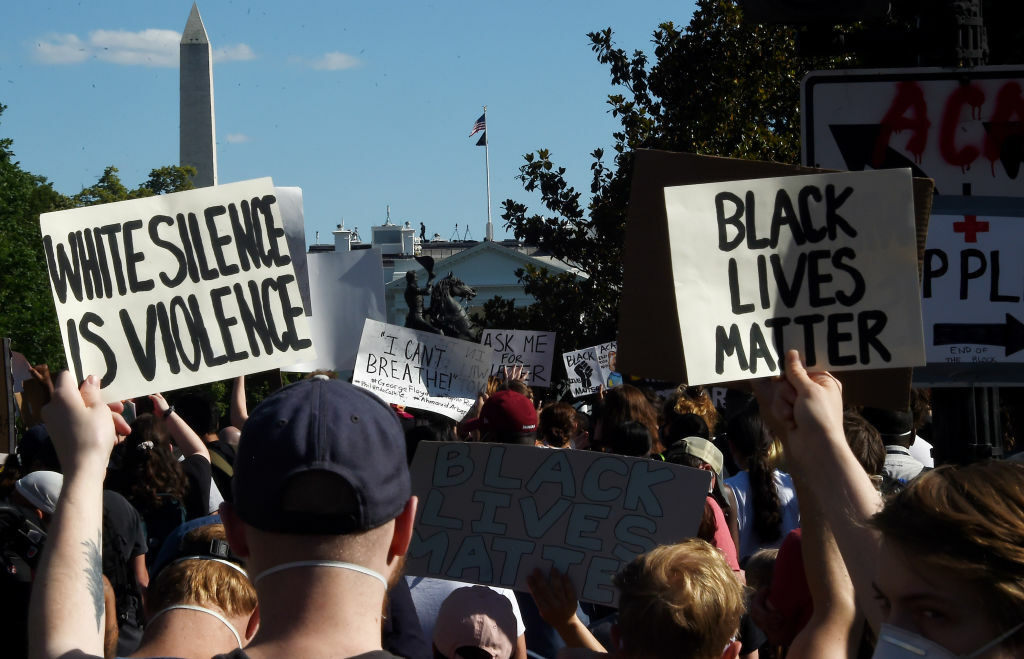
AFP via Getty Images/OLIVIER DOULIERY
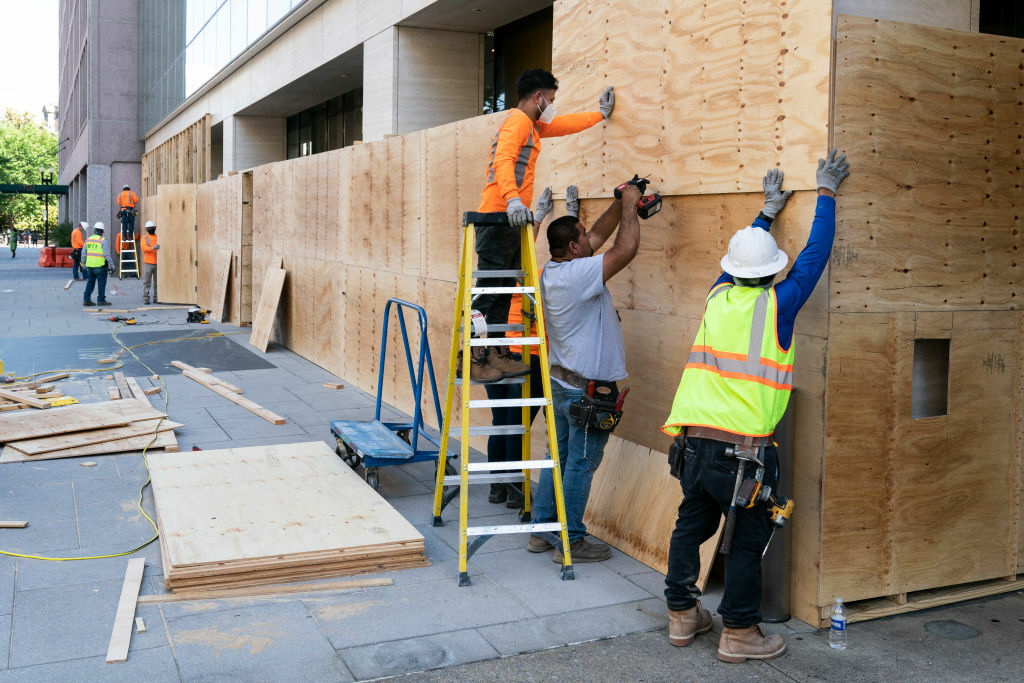
Getty Images/Joshua Roberts
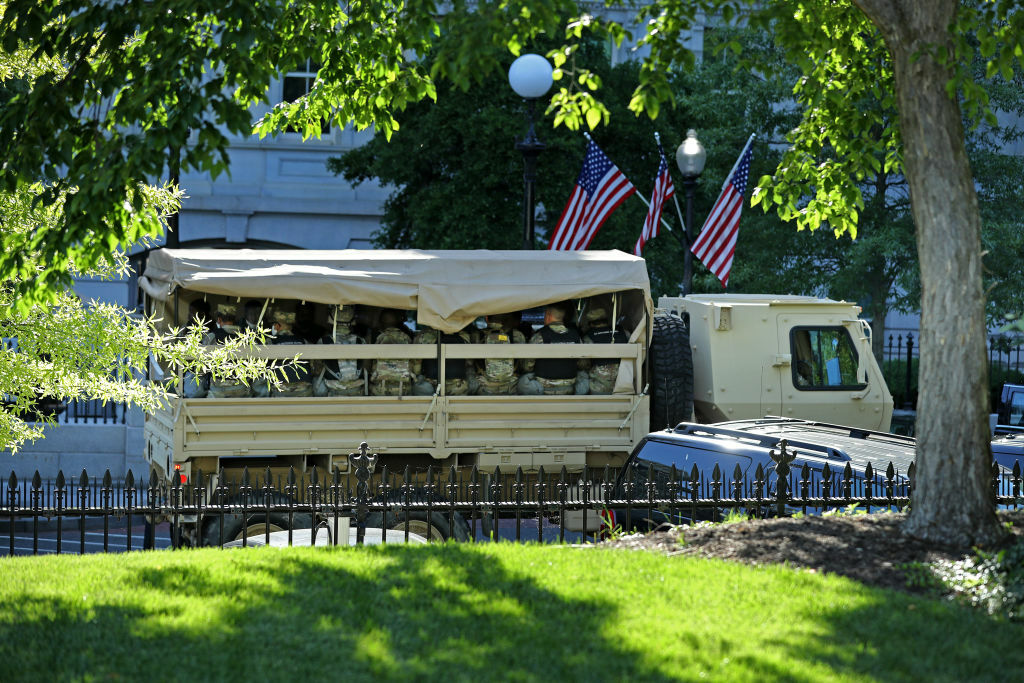
Getty Images/Chip Somodevilla
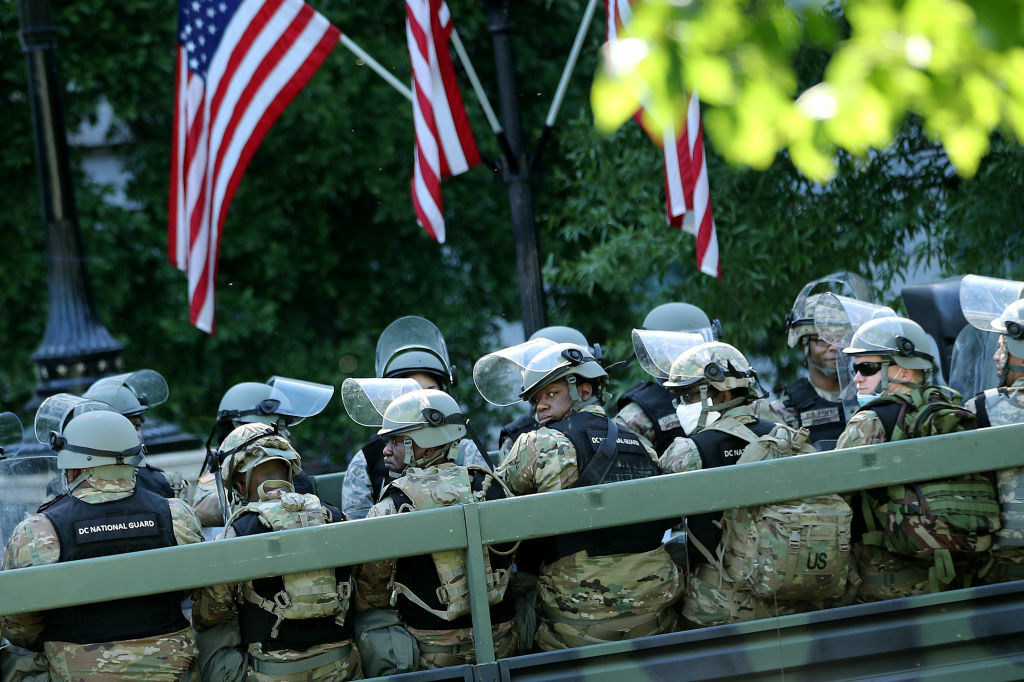
Getty Images/Chip Somodevilla
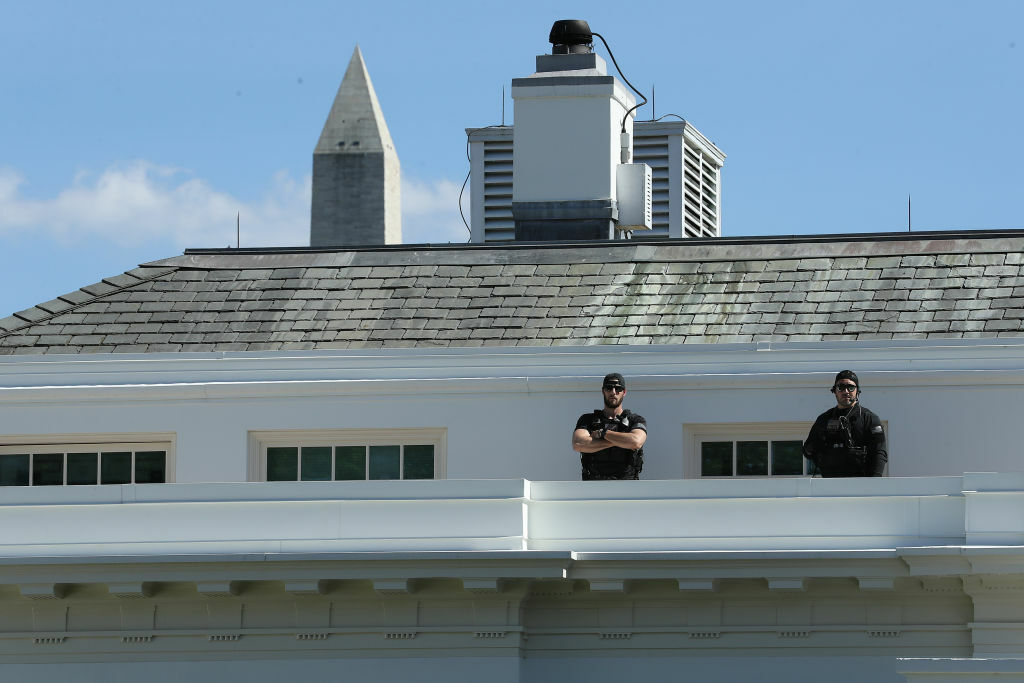
Getty Images/Chip Somodevilla
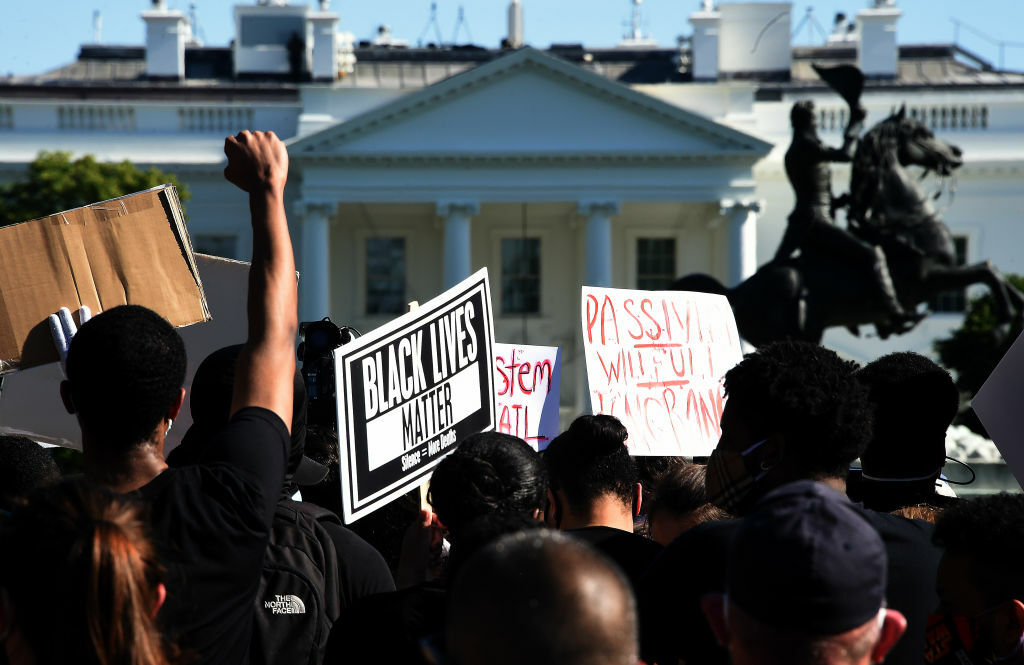
AFP via Getty Images/OLIVIER DOULIERY
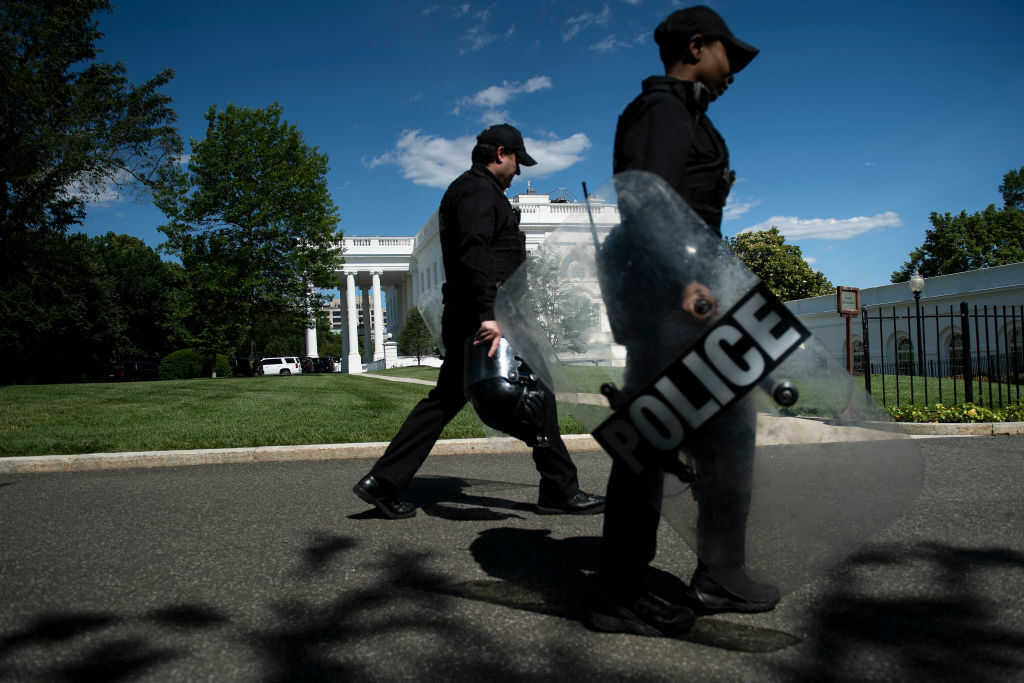
AFP via Getty Images/BRENDAN SMIALOWSKI
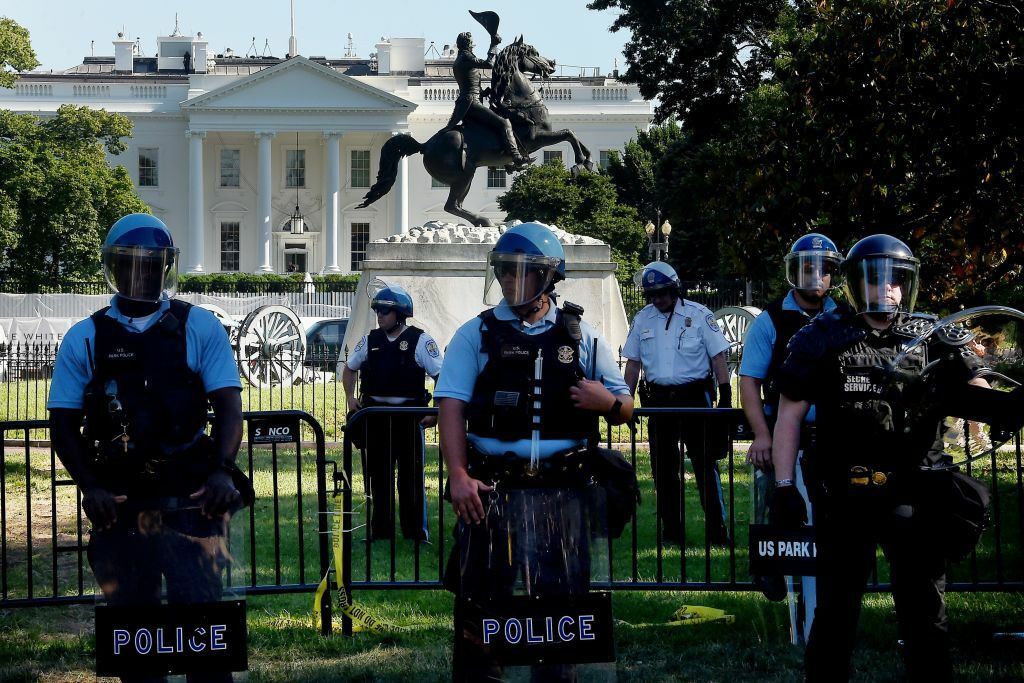
AFP via Getty Images/OLIVIER DOULIERY
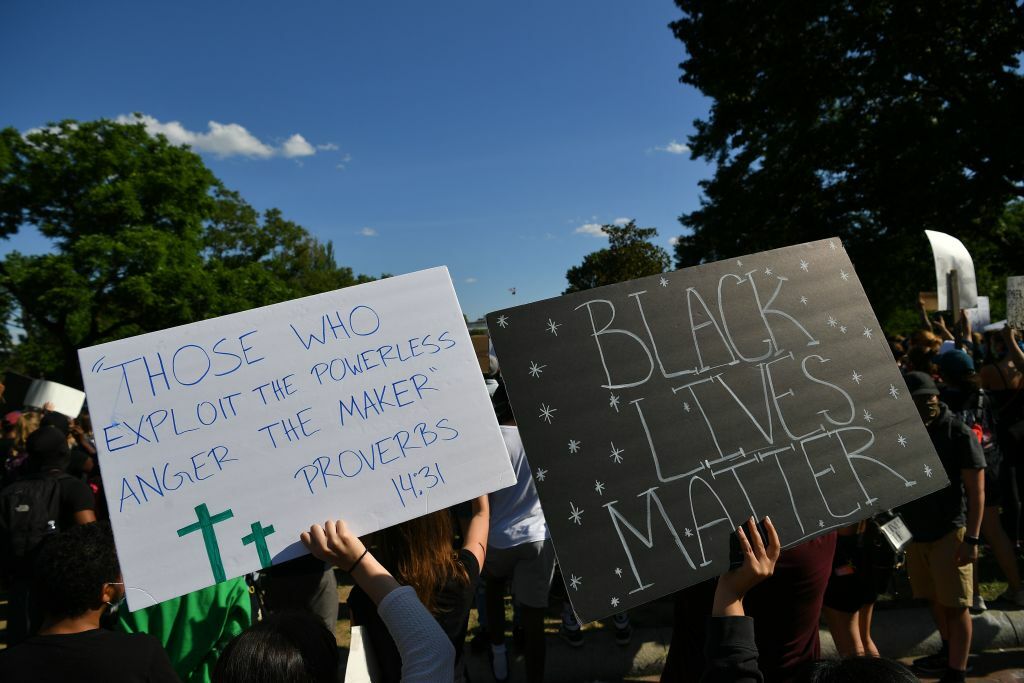
AFP via Getty Images/MANDEL NGAN
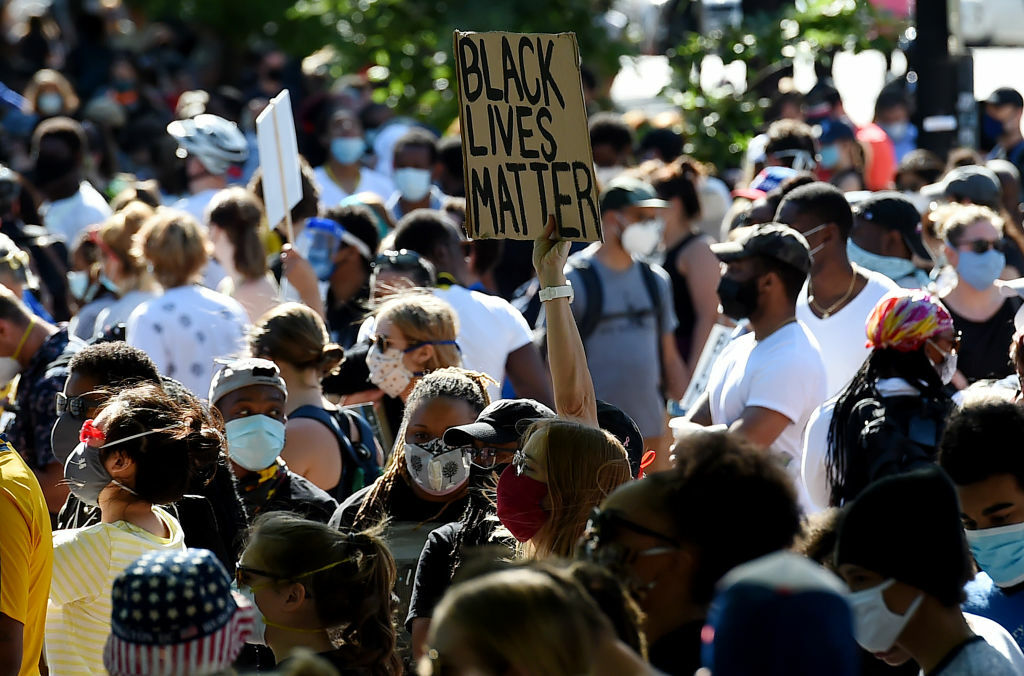
AFP via Getty Images/OLIVIER DOULIERY
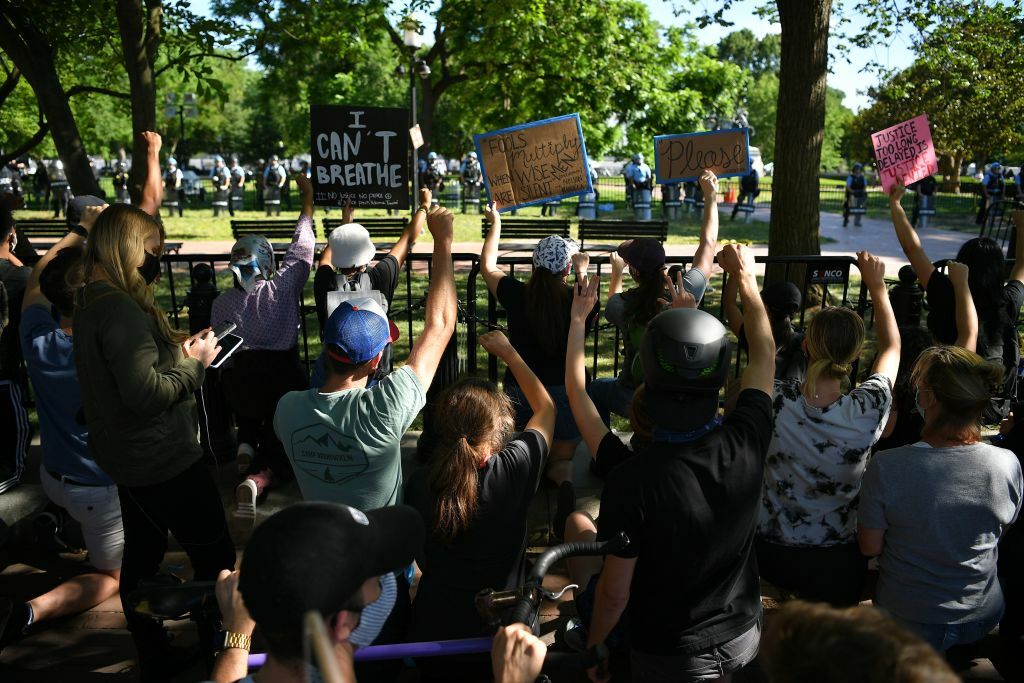
AFP via Getty Images/MANDEL NGAN
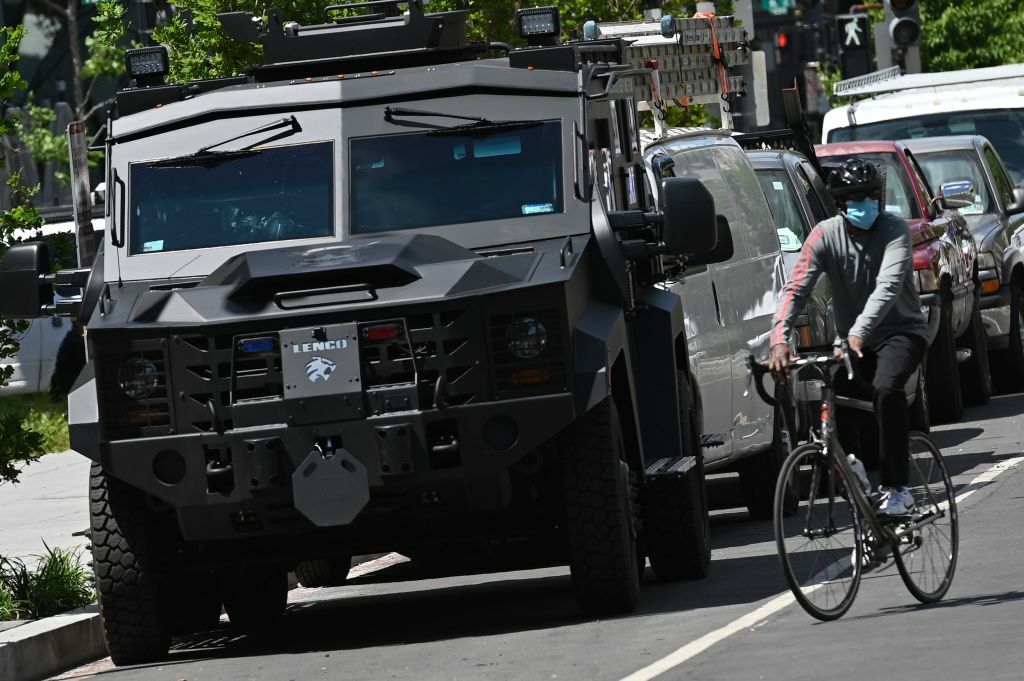
AFP via Getty Images/MANDEL NGAN
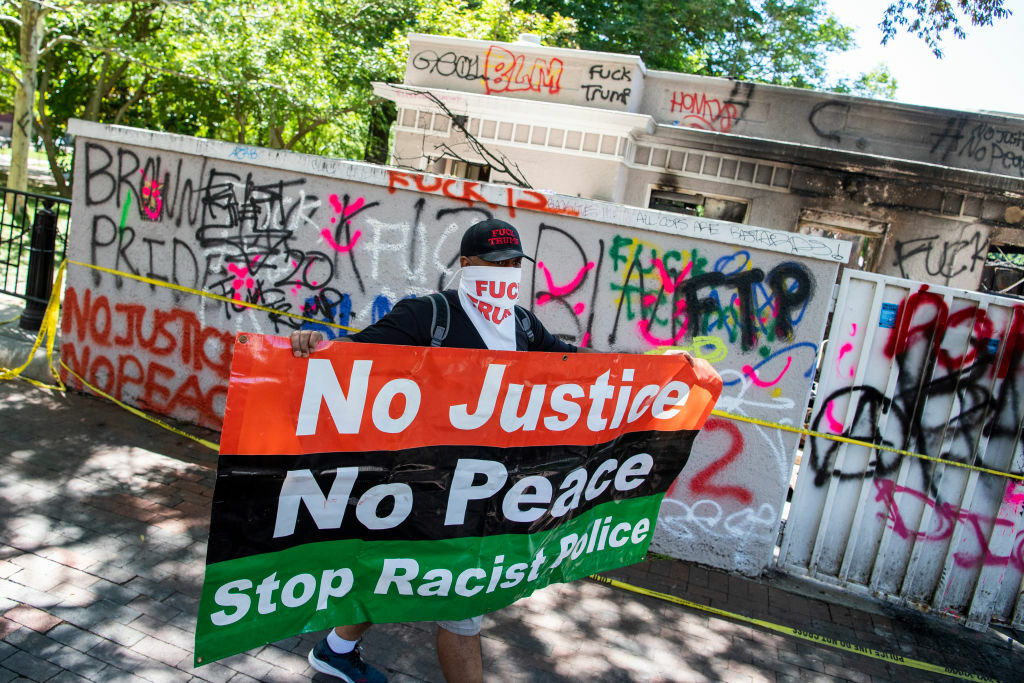
CQ-Roll Call, Inc via Getty Imag/Tom Williams
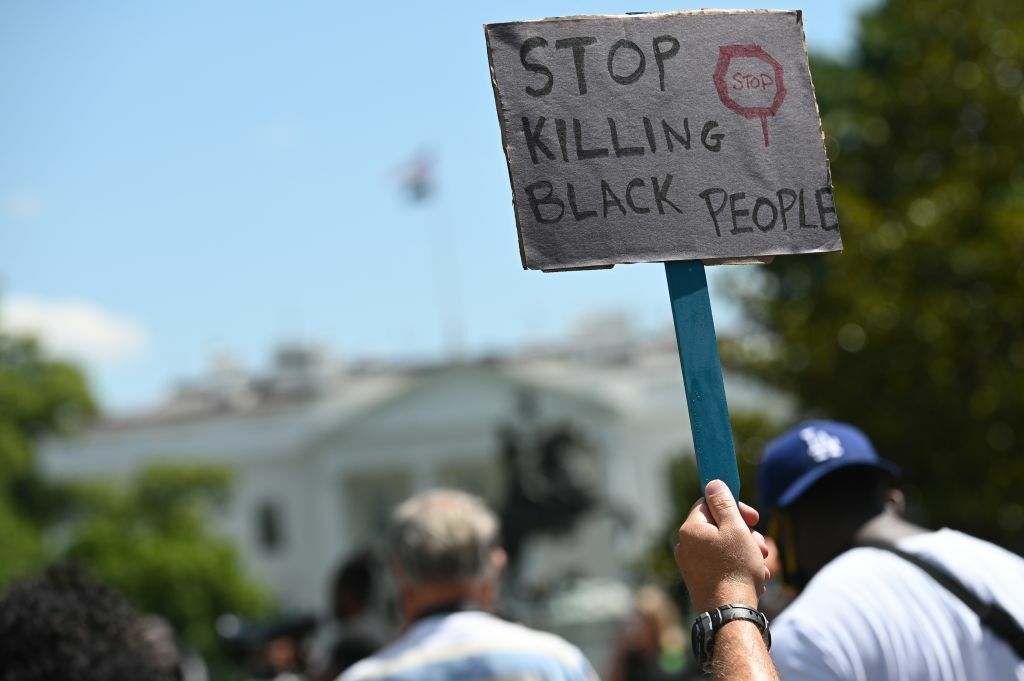
AFP via Getty Images/MANDEL NGAN
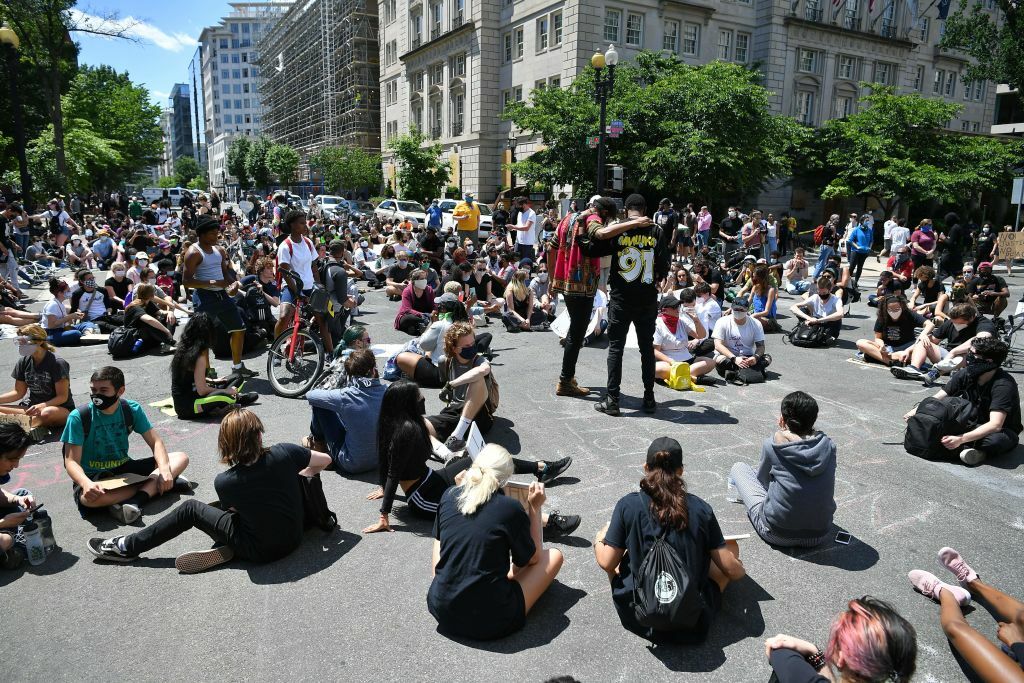
AFP via Getty Images/MANDEL NGAN
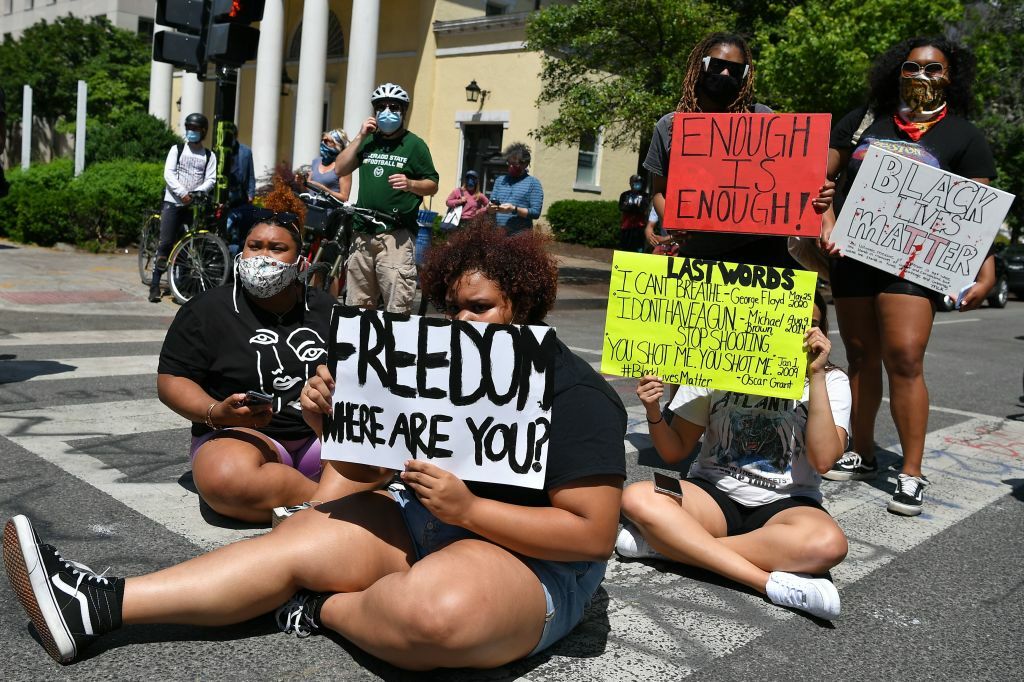
AFP via Getty Images/MANDEL NGAN
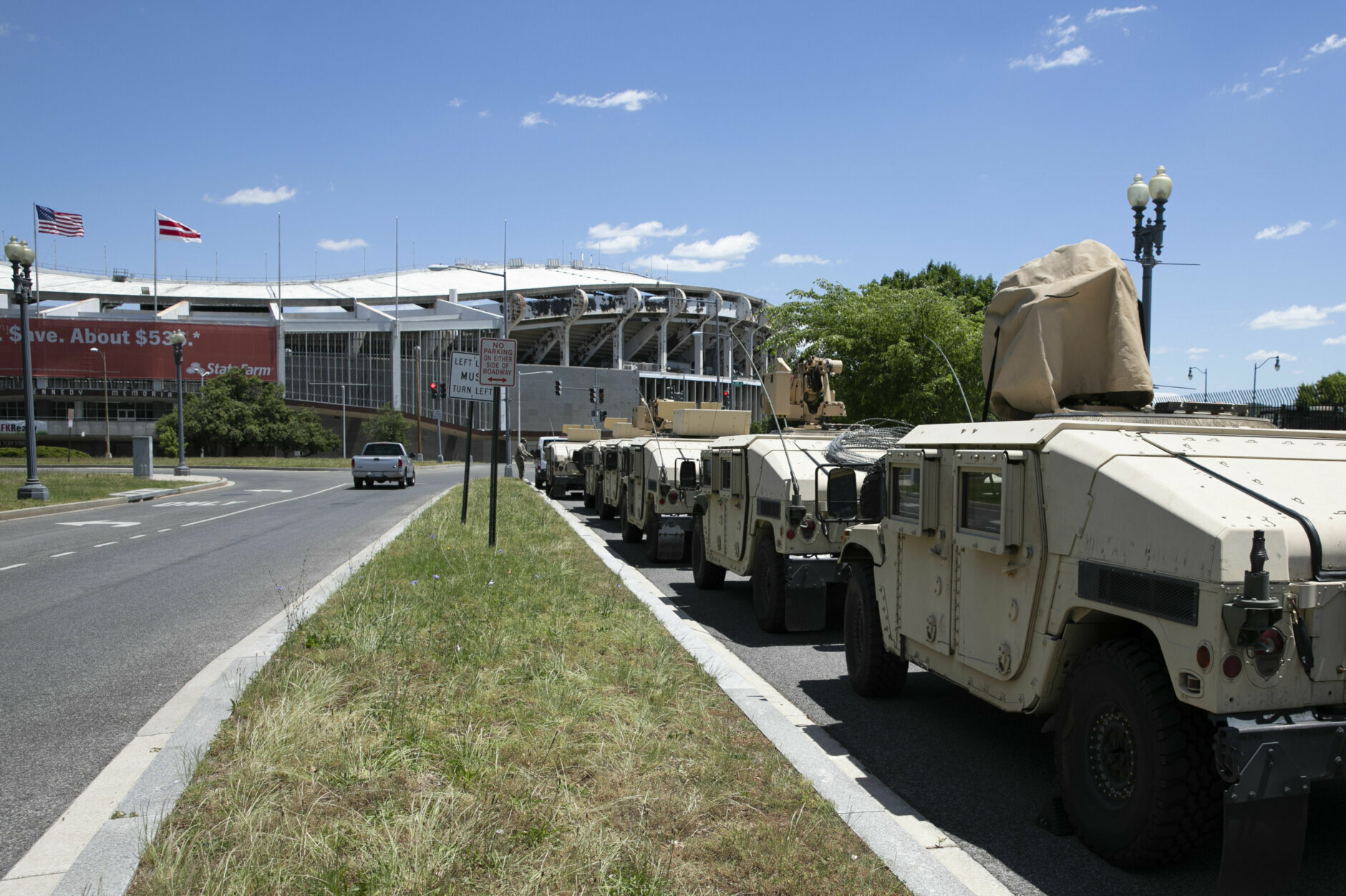
AP/Jacquelyn Martin
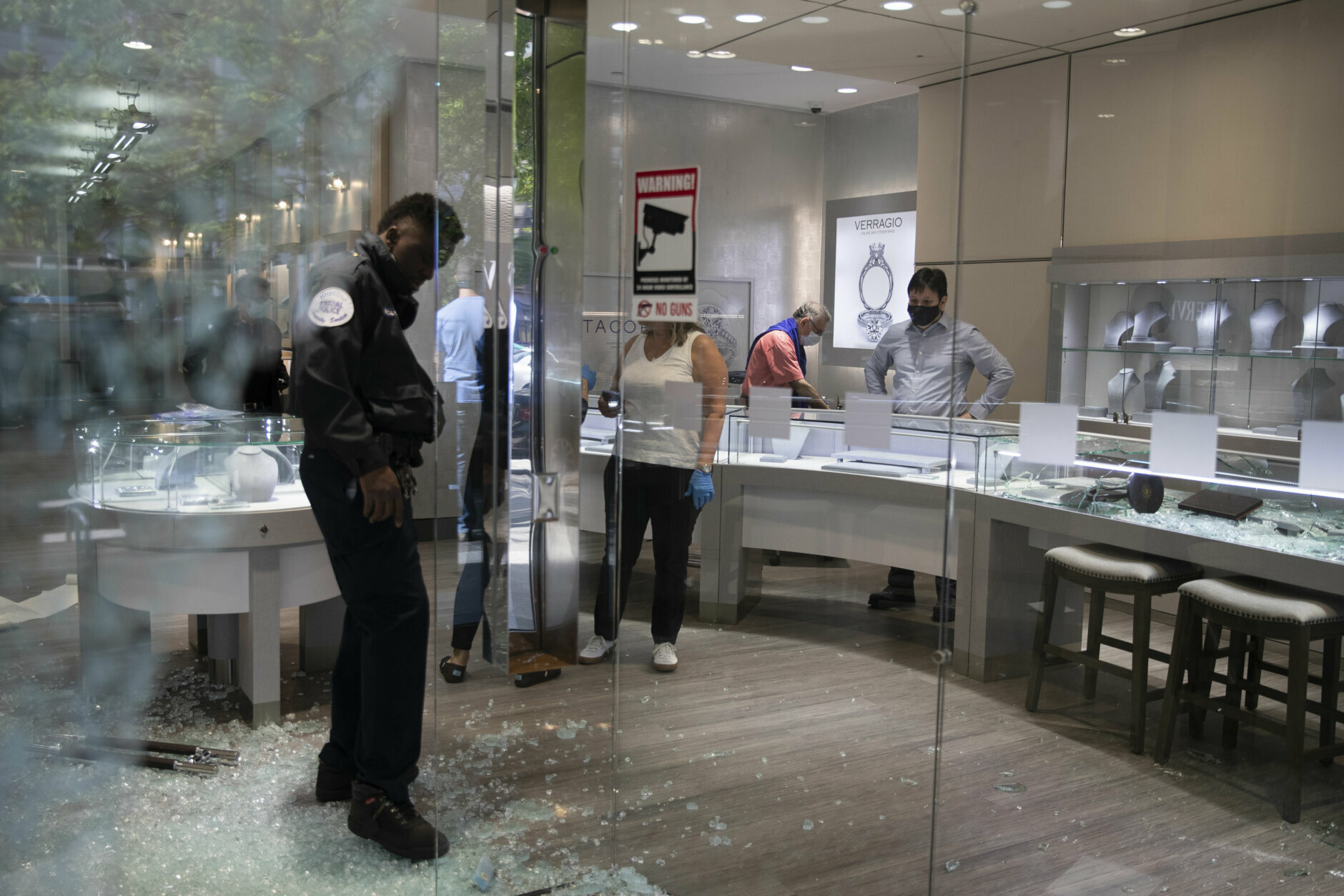
AP/Carolyn Kaster
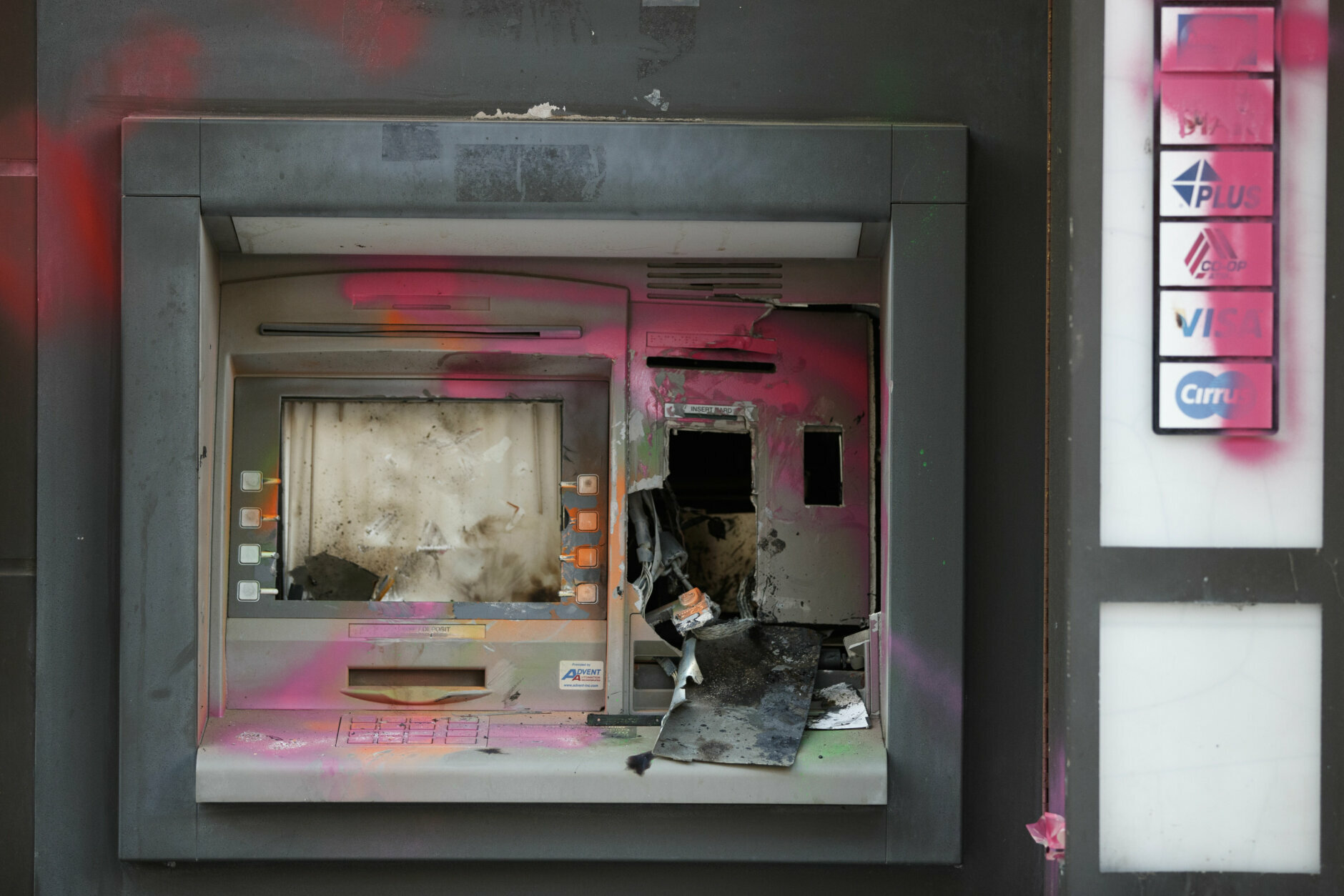
AP/Carolyn Kaster
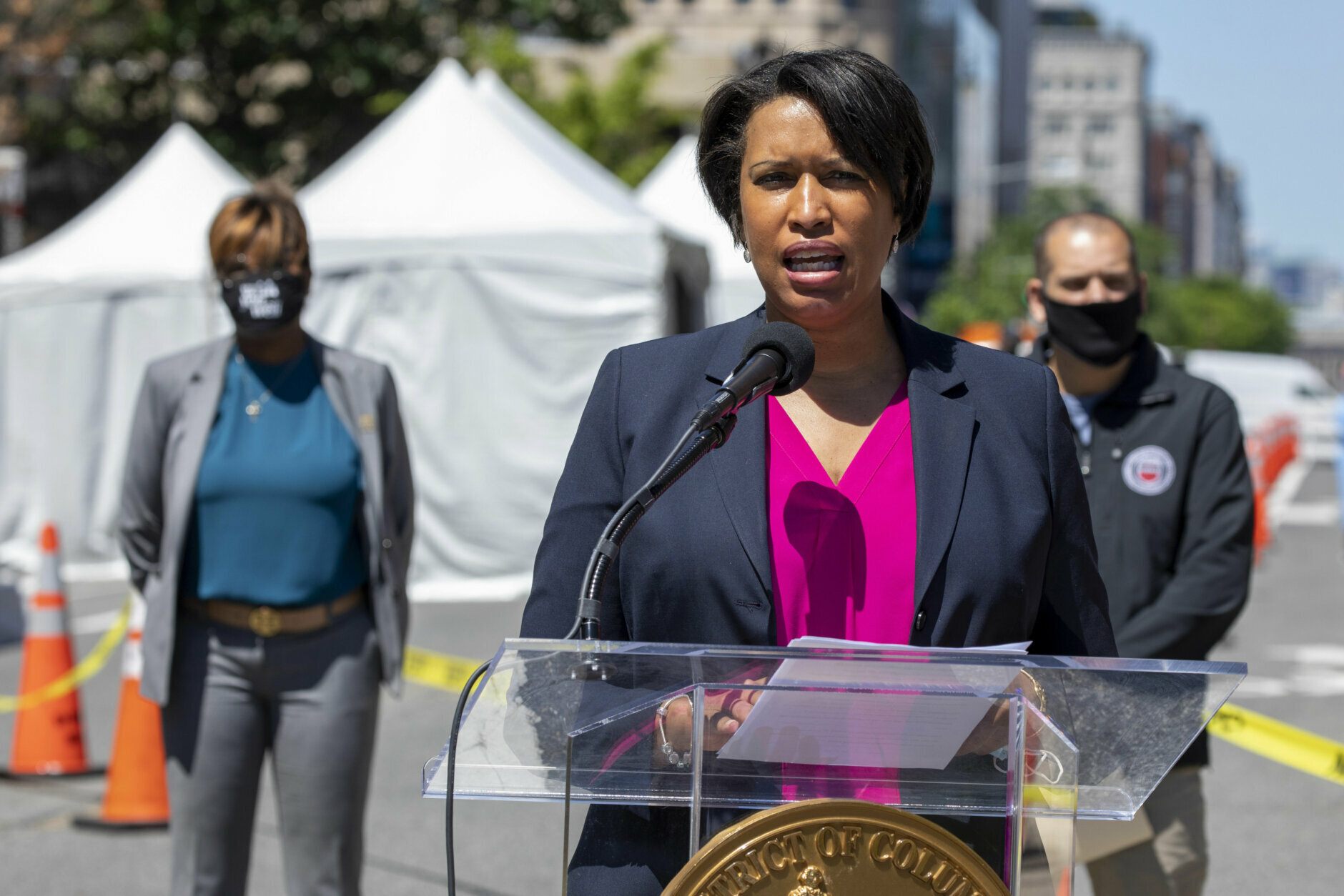
AP/Jacquelyn Martin
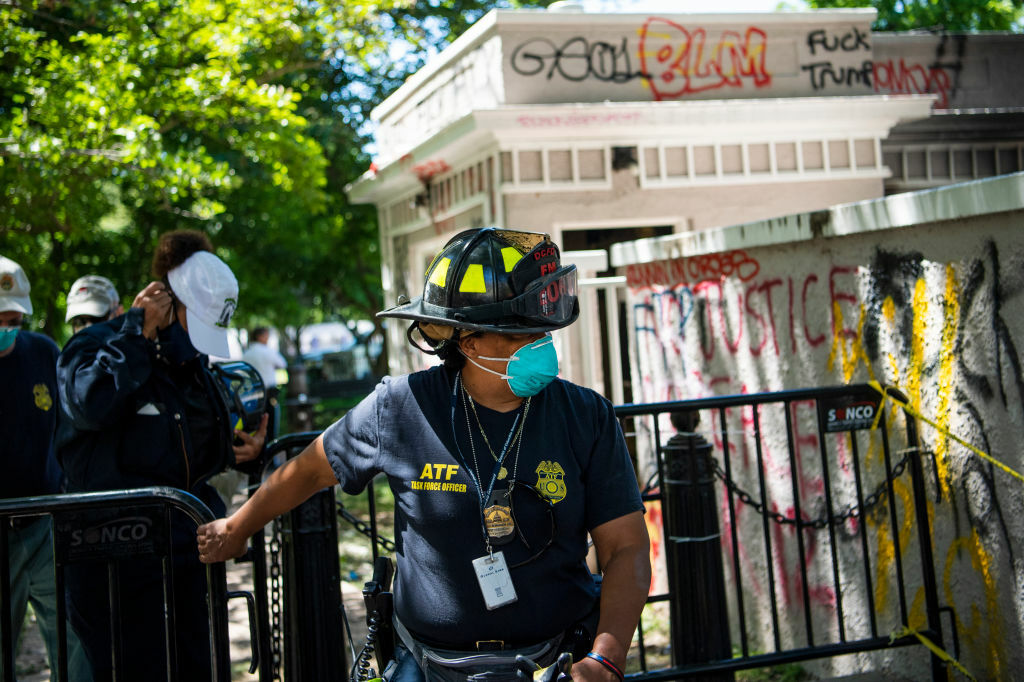
CQ-Roll Call, Inc via Getty Imag/Tom Williams
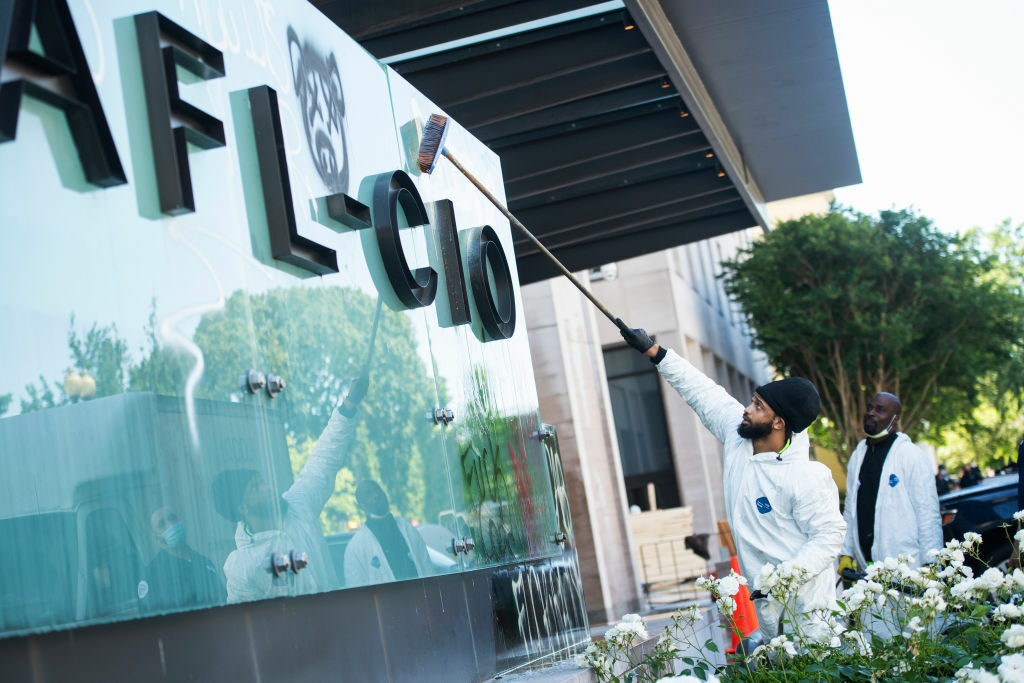
CQ-Roll Call, Inc via Getty Imag/Tom Williams
“I want the organizers of this terror to be on notice that you will face severe criminal penalties and lengthy sentences in jail,” Trump added.
Afterward, he walked over to St. John’s Episcopal Church, which had suffered fire damage in a protest Sunday. Law enforcement used tear gas and deployed flash bangs to clear the protesters who had been peacefully gathered from the area.
Pepper spray used at the barricade in Lafayette. I didn’t see what caused it but it happened while people were kneeling. Calls to “regain your composure” and refrain from throwing things followed, again I’m seeing an effort to avoid a conflict. pic.twitter.com/JPTMVLtXDS
— Alejandro Alvarez (@aletweetsnews) June 1, 2020
The bishop of the Episcopal Diocese of Washington Mariann Budde said she does not support Trump’s “incendiary response to a wounded, grieving nation.”
“We stand with those seeking justice for the death of George Floyd through the sacred act of peaceful protest,” Budde said in a statement Monday night.
She said the president used a bible and a church in the diocese as back drop for a message that was “antithetical to the teachings of Jesus and everything that our church stands for,” while sanctioning the use of tear gas to clear the church of protesters.
The President did not come to pray; he did not lament the death of George Floyd or acknowledge the collective agony of people of color in our nation. He did not attempt to heal or bring calm to our troubled land.
— Mariann Budde (@Mebudde) June 2, 2020
What does the curfew mean?
Despite the curfew, voters will be able to go to the polls between 7 p.m. and 8 p.m. Tuesday.
Election workers will be able to go home after the polls close. Polls close Tuesday at 8 p.m.
Bowser, in offering guidance about the curfew, said Monday afternoon that more federal assets could be deployed around the city to focus on federal properties and monuments.
She expressed concerns about the presence of these assets but said, “We recognize they are helpful for monuments and memorials.”
A number of national monuments around the city were vandalized during the Saturday night protests, the National Parks Service confirmed.
After outbreaks of destruction and violence during the protests, Bowser said Monday that while “we applaud the American spirit of protest,” the city will not “allow the continued destruction of our hometown by people who are coming here to protest or by D.C. residents.”
Among the stores damaged during Sunday’s protests were a looted liquor store in Foggy Bottom, a Giant Food store in Shaw and a Sephora in Gallery Place. In Friendship Heights and Tenleytown, many stores were boarded up Monday, including a Target — which was hit — and a Rodman’s specialty store on Wisconsin Avenue.
Earlier on Monday, Newsham warned those in the District that, except for journalists and those serving essential functions, people violating the curfew will be arrested.
“If you are not a member of the media or you do not have an essential function, you can anticipate that local police and federal police will take you into custody,” Newsham said. “That is a warning. And I am hopeful that that warning will be shared with everybody who is listening.”
D.C. police said they made 88 arrests Sunday night and into the early hours of Monday.
Bowser urged residents to stay home and only go out for essential work. “Keep you and family safe by doing so,” she said.
Asked if it would be OK to walk their dogs after the curfew, Bowser said, “I want everybody to use common sense and good judgment.”
Bowser said that police are interested in people who are “destroying our city,” and they will be where there are necessary. “So, if you show up at the Target, and you mean to loot and create mayhem, you’re going to get arrested,” she said.
Bowser also fielded questions on the start of Sunday’s curfew at 11 p.m., and she said that they knew there were people who were “hellbent on destruction” no matter what time the curfew started.
Restaurant owner sends staff home early
As D.C. entered its first week of its phase one reopening during the pandemic, the protests and curfews posed problems for restaurant owners: Should they remain open?
Chef Geoff Tracy owns restaurants Chef Geoff’s, a popup Chef Geoff and Tortilla Coast in D.C. and Lia’s in Chevy Chase, Maryland.
He said on Friday and Saturday night his restaurants saw some forward momentum when they reopened their outdoor seating areas.
“Now unfortunately, for the really bad apples, they’re trying to use that seating and stuff to break windows,” Tracy said.
While his restaurants were not damaged during the unrest, Tracy said his popup location at 22nd and M streets had people knocking on the windows, while his manager was inside closing up.
“She basically shouted them off. She’s OK. She’s pretty angry at them,” he said.
With the nightly curfew, Tracy sent his staff home early Monday night, and he was still deciding whether and when any of the restaurants will reopen on Tuesday.
“’It is a big step back, and I feel really sad for the business owners. I feel really sad for the legitimate protesters. I feel sad for the entire Washington, D.C. community,” Tracy said.
National protests
Protests erupted across the country in response to Floyd’s death.
City and state officials deployed thousands of National Guard soldiers, enacted strict curfews and shut down mass transit systems to slow protesters’ movements, but that did little to stop parts of many cities from again erupting into mayhem.
Protesters in Philadelphia hurled rocks and Molotov cocktails at police, officials said. People in more than 20 California cities smashed their way into businesses and ran off with as much as they could carry: boxes of sneakers, armloads of clothes, and cellphones, TVs and other electronics.
In Minneapolis, a tanker truck driver drove into a massive crowd of demonstrators. No protesters appeared to be injured, and the driver was arrested.
As the protests grew, Trump retweeted conservative commentator Buck Sexton, who called for “overwhelming force” against violent demonstrators.
Trump also slammed governors across the nation Monday. He derided the nation’s governors as “weak” and demanded tougher crackdowns on protesters.
Trump spoke to governors on a teleconference with law enforcement and national security officials, telling the local leaders they “have to get much tougher” amid nationwide protests, and criticizing their responses.
“Most of you are weak,” Trump said. “You have to arrest people.”
This came after Secret Service agents had rushed Trump to a White House bunker on Friday night as hundreds of protesters gathered outside the executive mansion, some of them throwing rocks and tugging at police barricades.
The president spent nearly an hour in the bunker designed for use in emergencies such as terrorist attacks, according to a Republican close to the White House, who was not authorized to publicly discuss private matters and spoke on condition of anonymity. The account was confirmed by an administration official, who also spoke on condition of anonymity.
WTOP’s Ken Duffy and Alejandro Alvarez reported from the protests. WTOP’s Colleen Kelleher and The Associated Press also contributed to this story.
"day" - Google News
June 02, 2020 at 05:05PM
https://ift.tt/2U0RPWZ
4th day of DC protests saw marchers hit with tear gas, rubber bullets - WTOP
"day" - Google News
https://ift.tt/3f7h3fo
https://ift.tt/2VYSiKW
Bagikan Berita Ini














0 Response to "4th day of DC protests saw marchers hit with tear gas, rubber bullets - WTOP"
Post a Comment